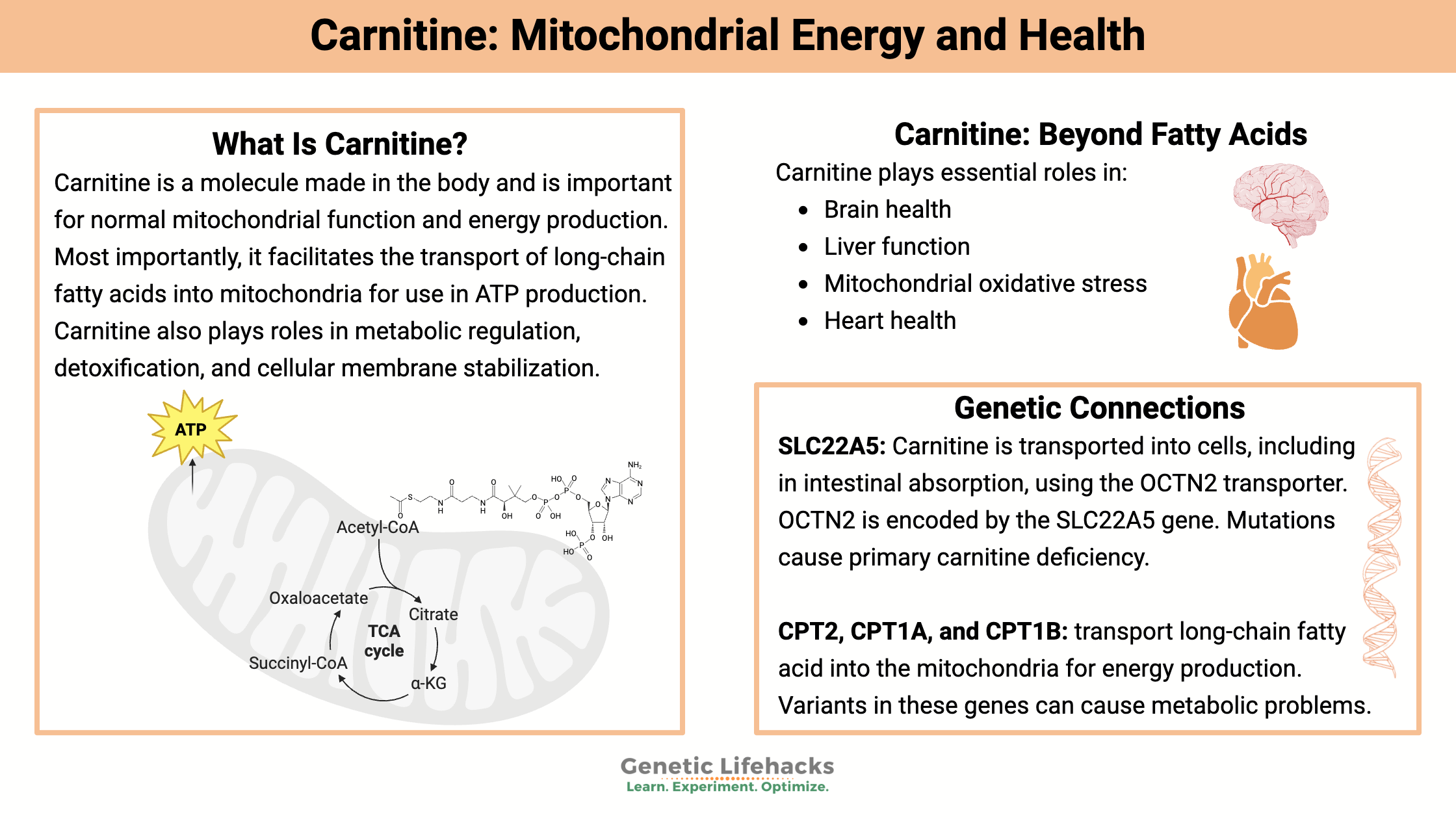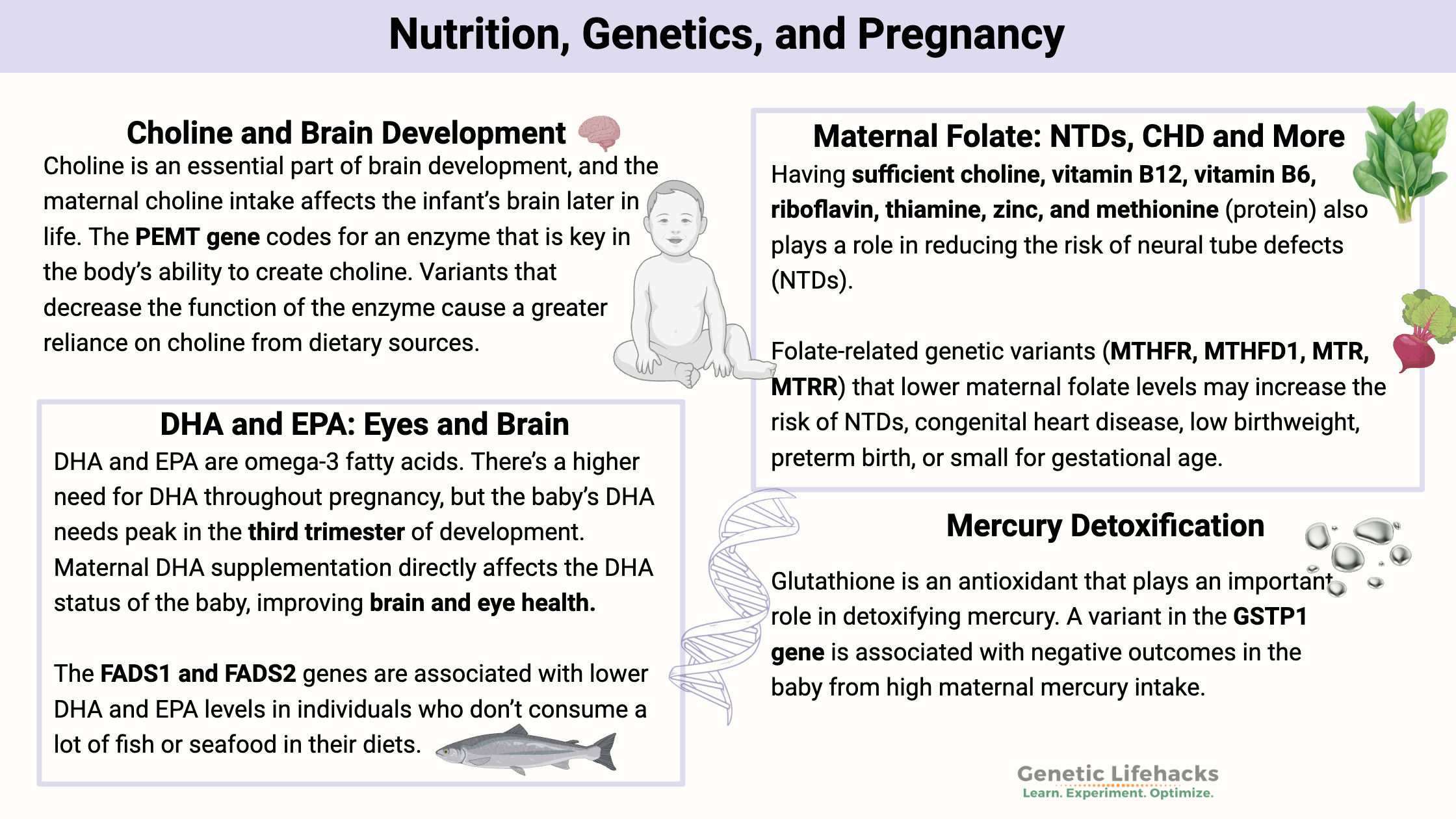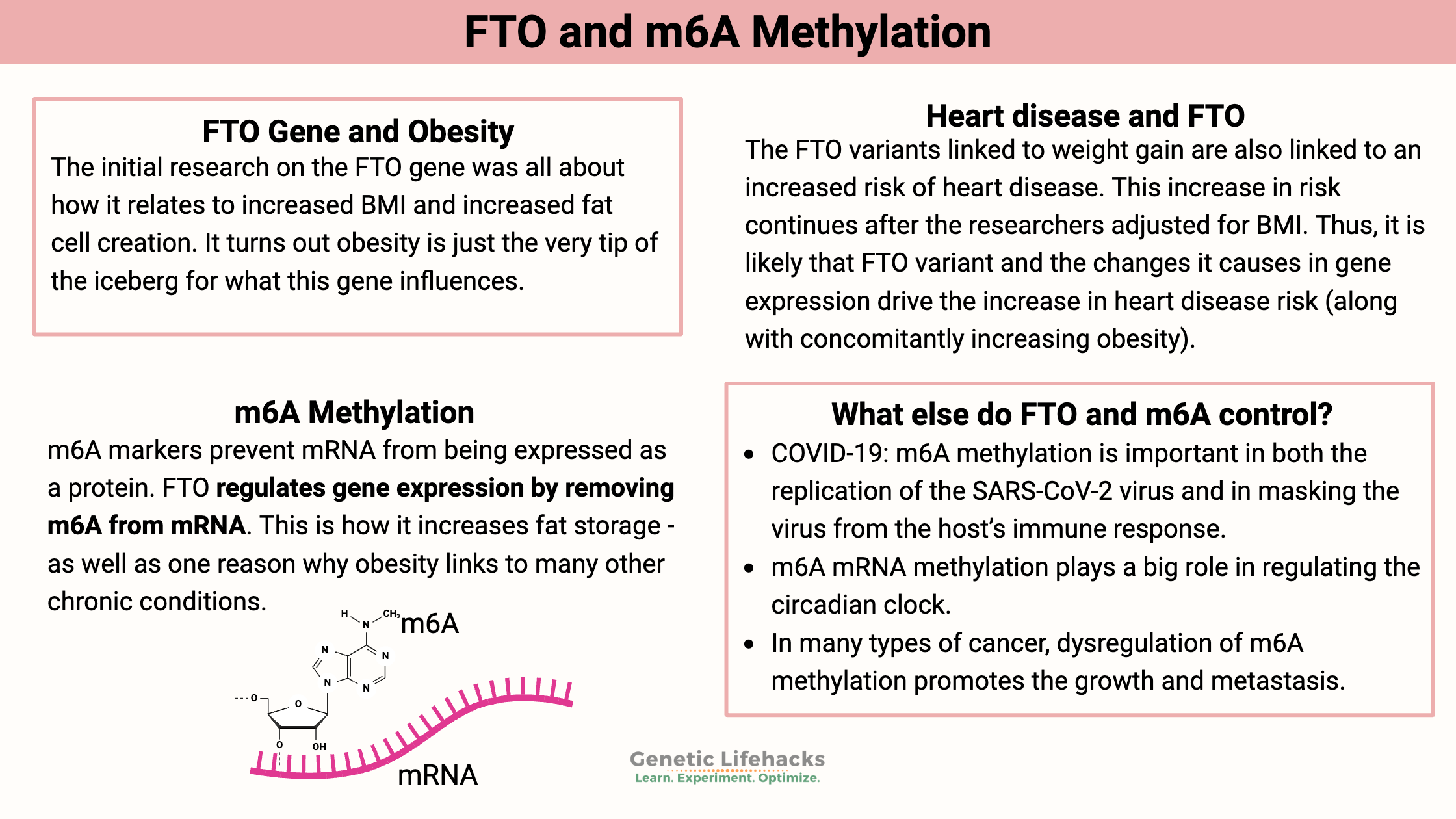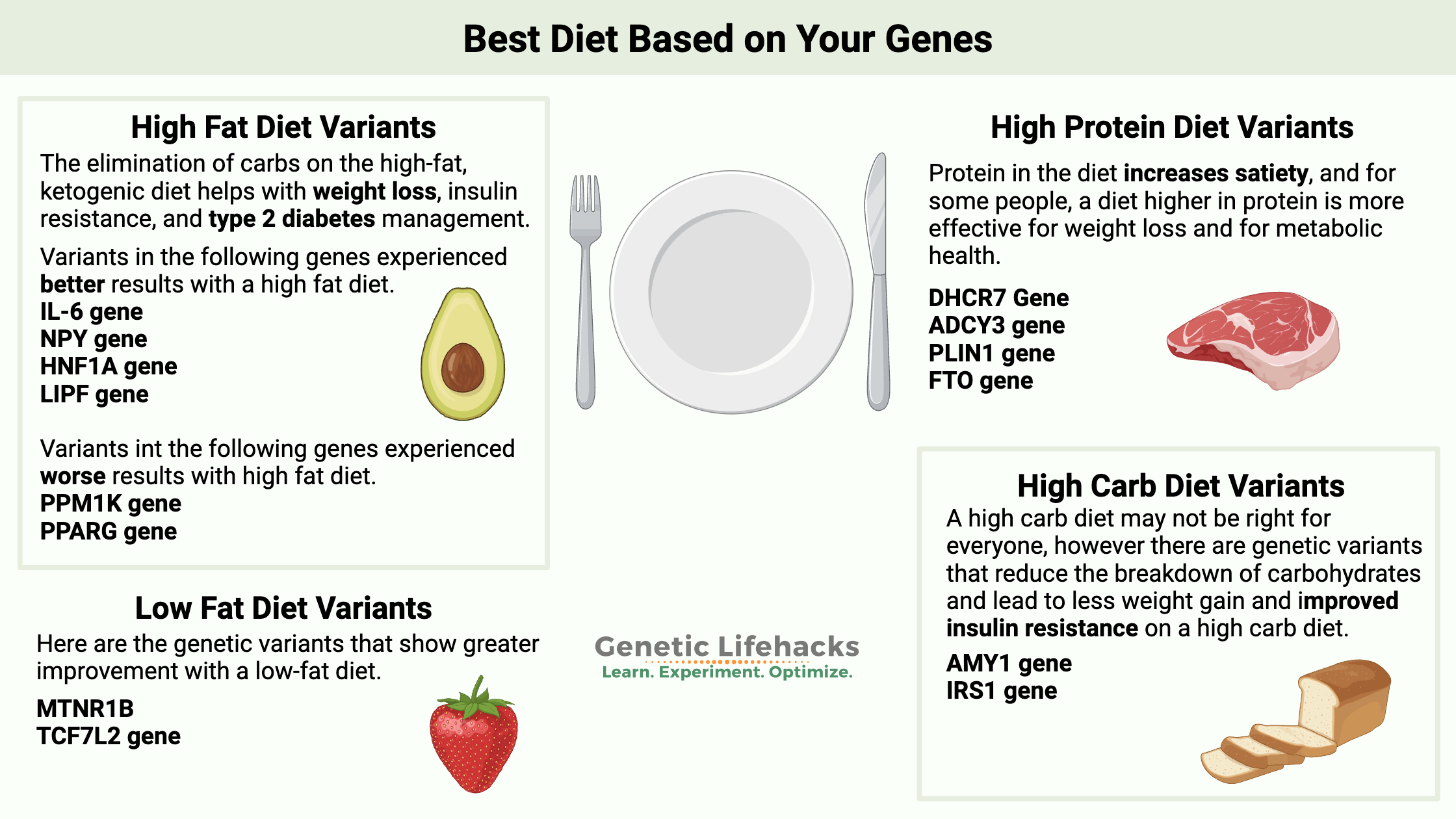Explore your genes. Personalize your health.
Genetic Lifehacks makes it easy to use your genetic raw data to find health and wellness solutions that are right for you.
- Learn how your genes influence nutrition, longevity, disease risk, wellness, and more.
- See your genotypes, read the research-backed solutions, and decide what works best for you.
- Use your genetic raw data from 23andMe, AncestryDNA, and more.
- Your genetic data stays securely on your own computer and isn’t uploaded or stored on Genetic Lifehacks. The features all work browser-side without transferring your genetic data.
Already a member? Sign in here.
Latest Articles and Genotype Reports:
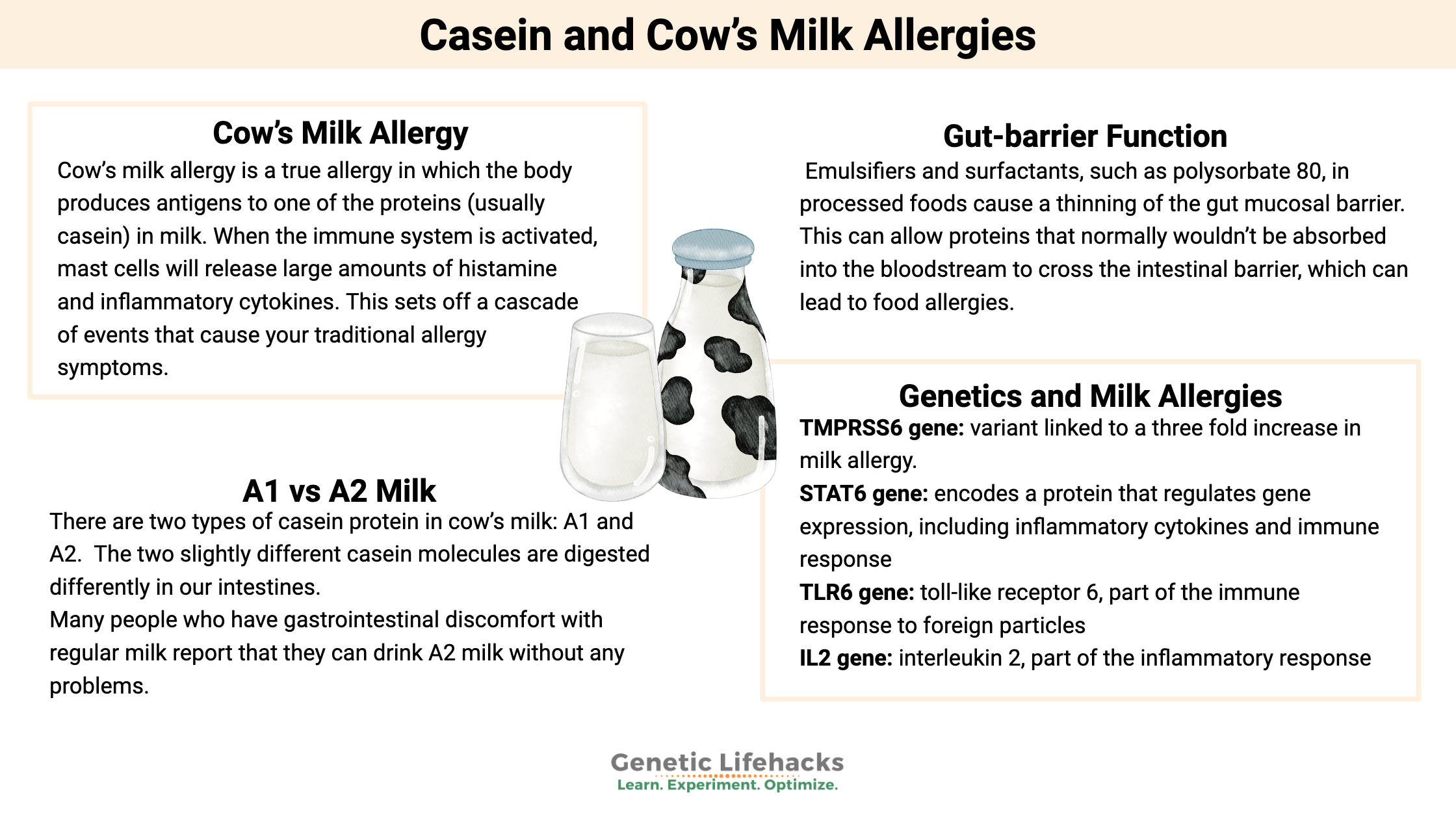
Casein and Cow’s Milk Allergies
Cow’s milk allergy can be due to your immune system responding to casein or β-lactoglobulin. Genetic variants in immune-system genes increase susceptibility – along with environmental factors.
// Heart Health
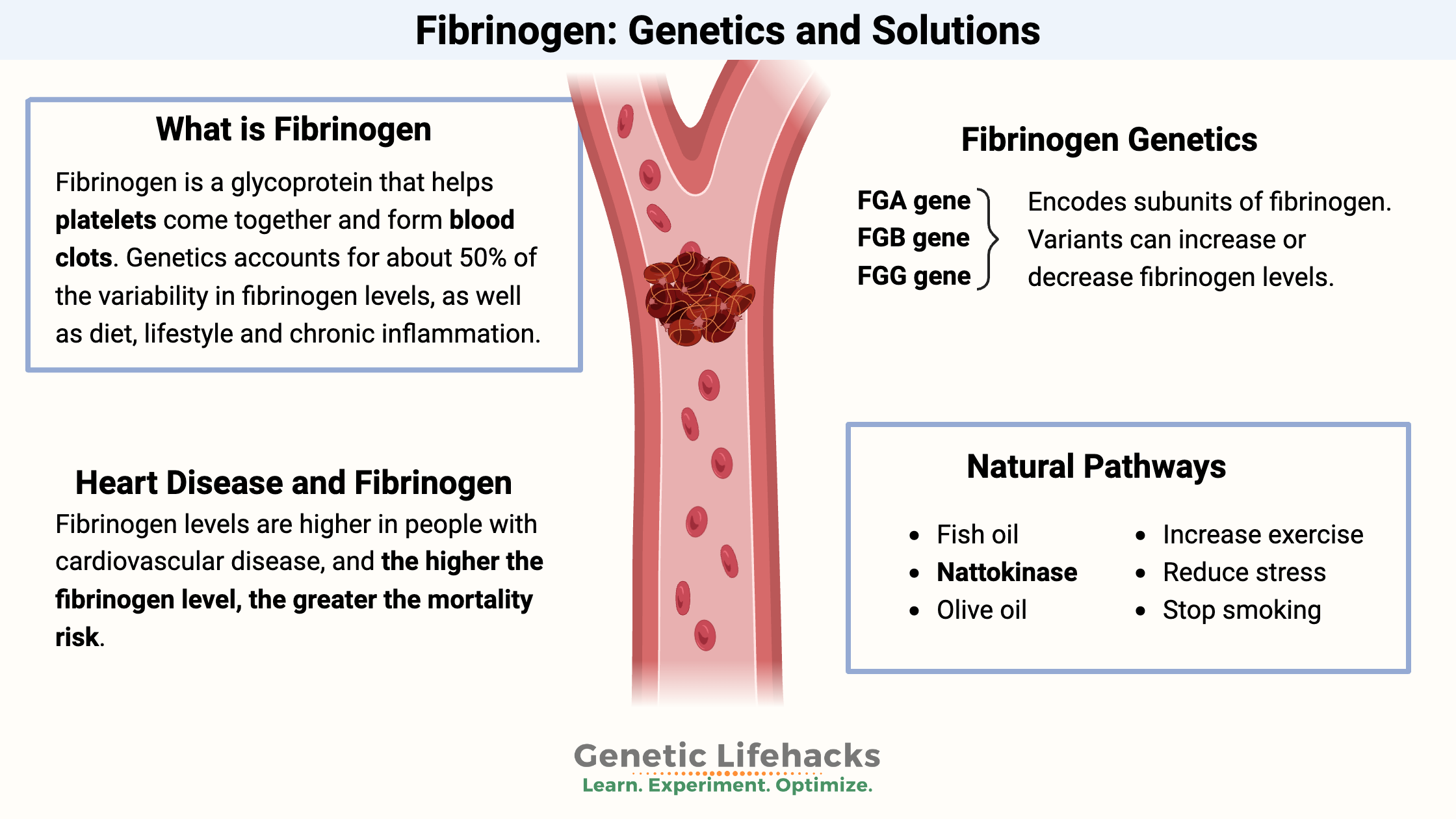
Elevated Fibrinogen: Risk factor for blood clots
Fibrinogen is a protein that is essential for creating blood clots when you get a wound. But higher levels of fibrinogen are a major risk factor for heart disease and DVT. Learn how your genes impact your fibrinogen level.
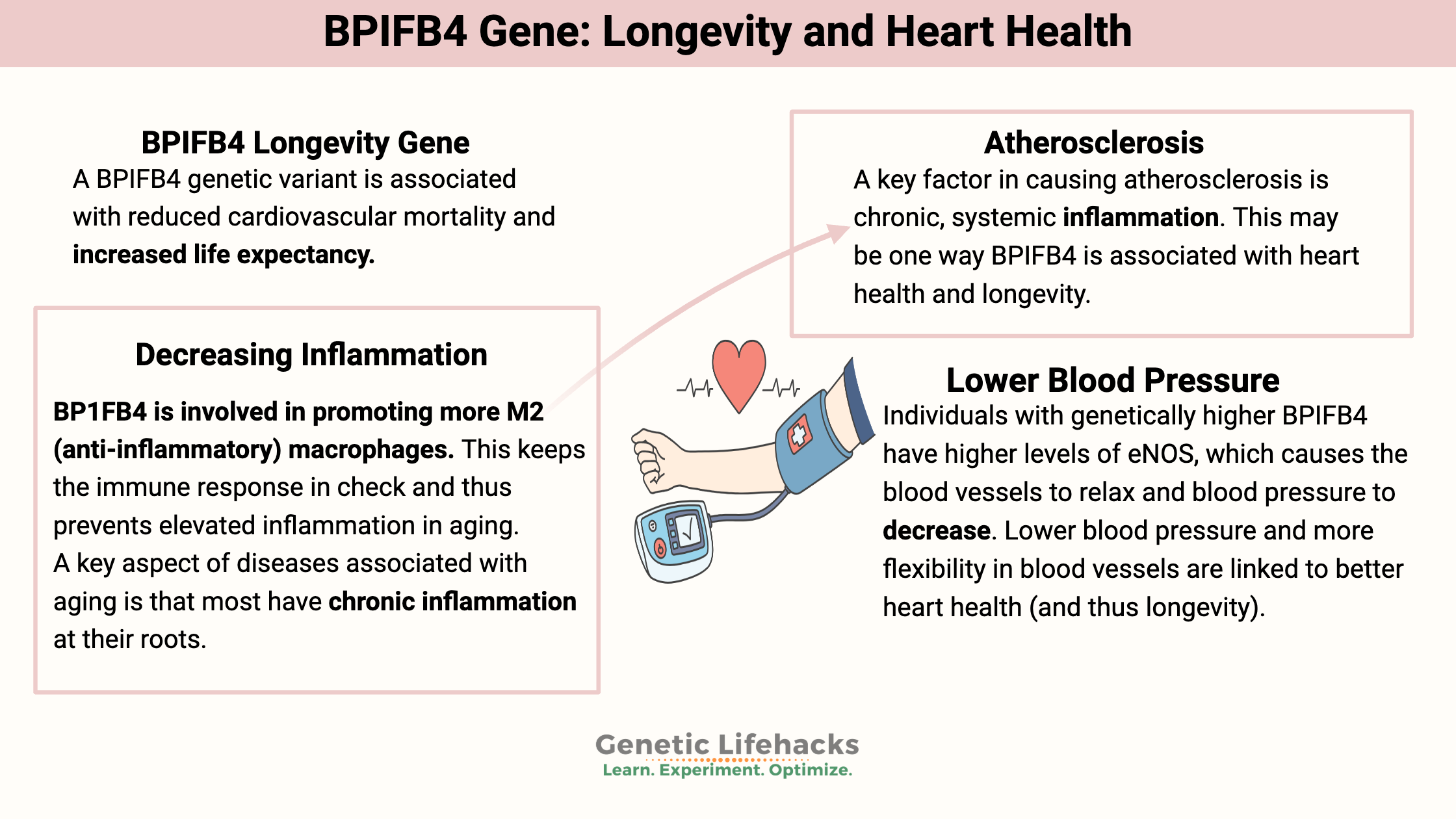
BPIFB4 Gene: Linked to Longevity and Heart Health
Discover the impact of the BPIFB4 gene on longevity and immunity, and find out if you have the longevity variant in your genotype report.
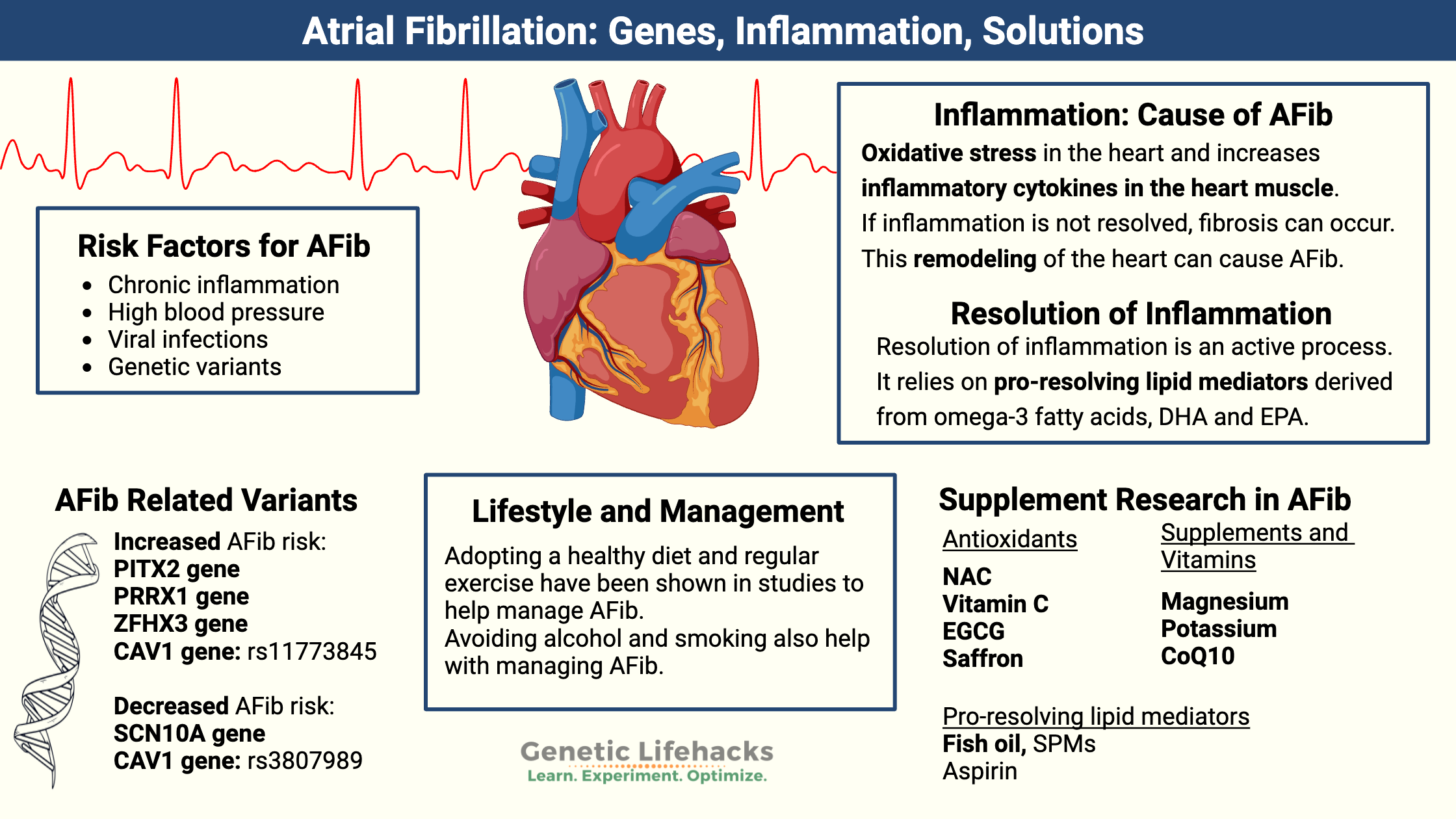
Atrial fibrillation: Intersection of genetic susceptibility with inflammation and remodeling
Atrial fibrillation is an irregular heartbeat in the atrium. Genetic variants combine with inflammation and environmental triggers in causing A-fib.
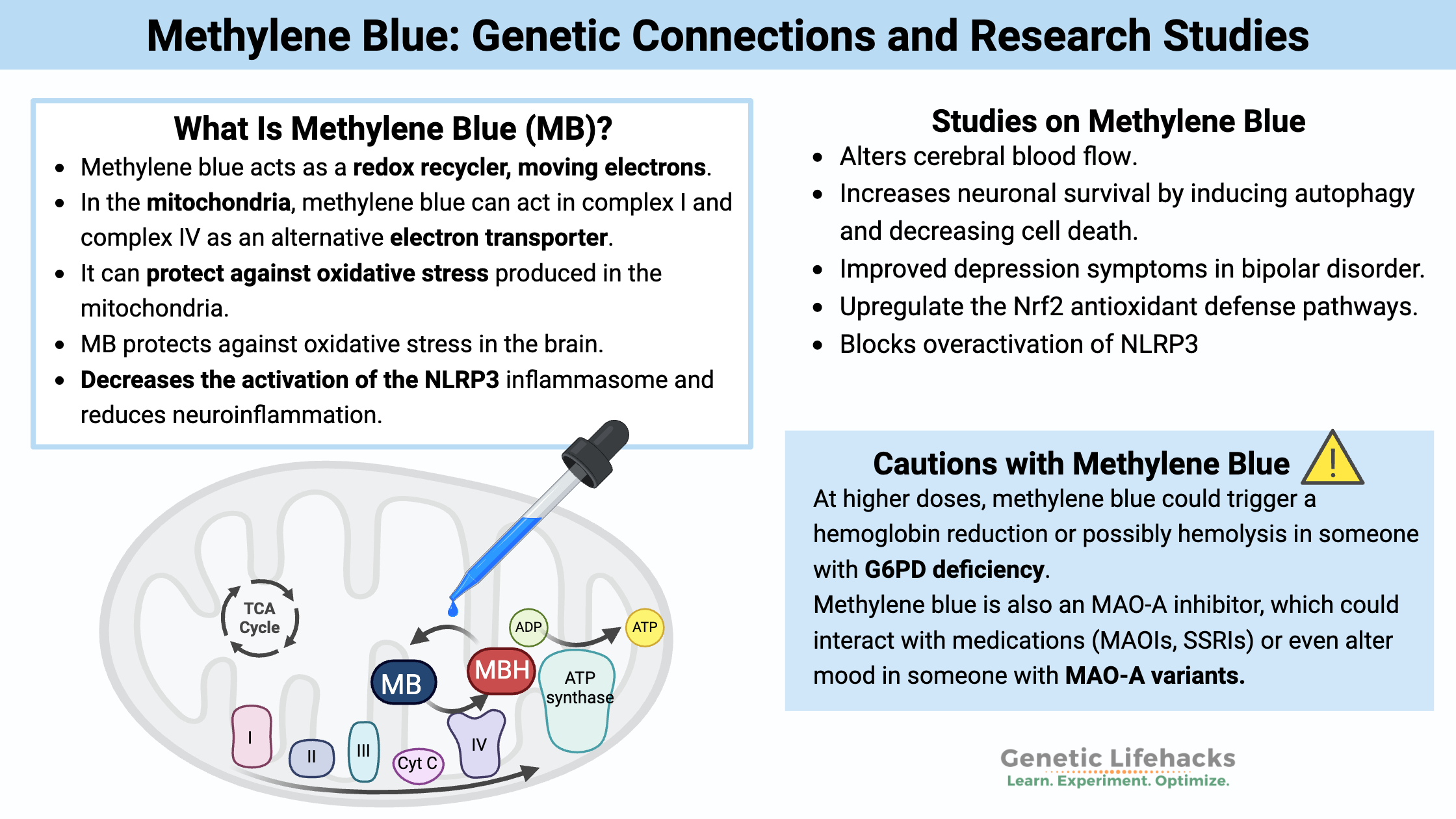
Methylene Blue: Genetic Connections and Research Studies
Methylene blue has neuroprotective and anti-inflammatory properties, but it isn’t for everyone. Learn about the genetic variants that throw a caution flag on this one.
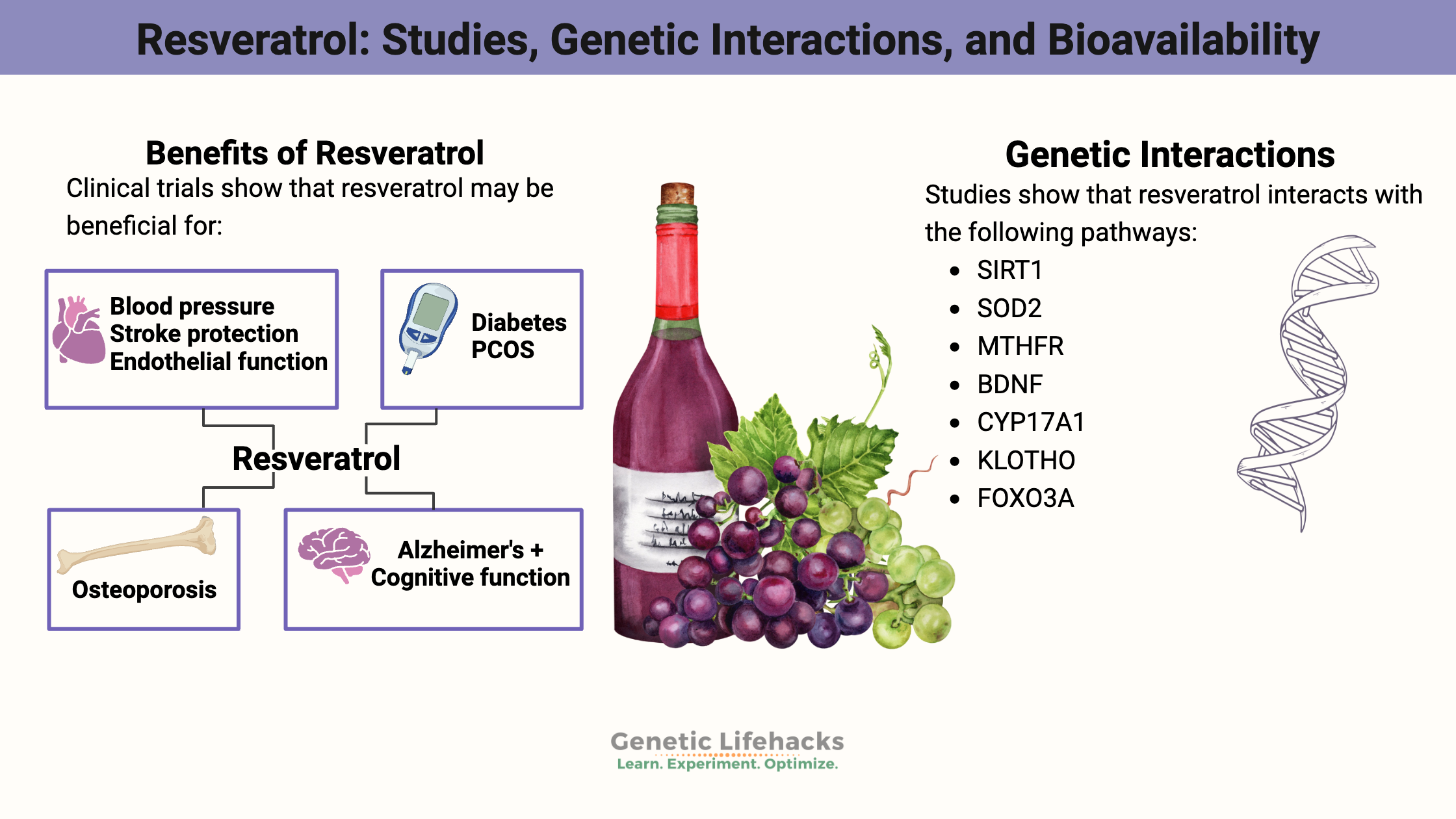
Resveratrol: Studies, Genetic Interactions, and Bioavailability
Resveratrol is a polyphenol with anti-inflammatory and antioxidant properties. Studies show that it affects heart health, bone health, cognitive function, and metabolic health.
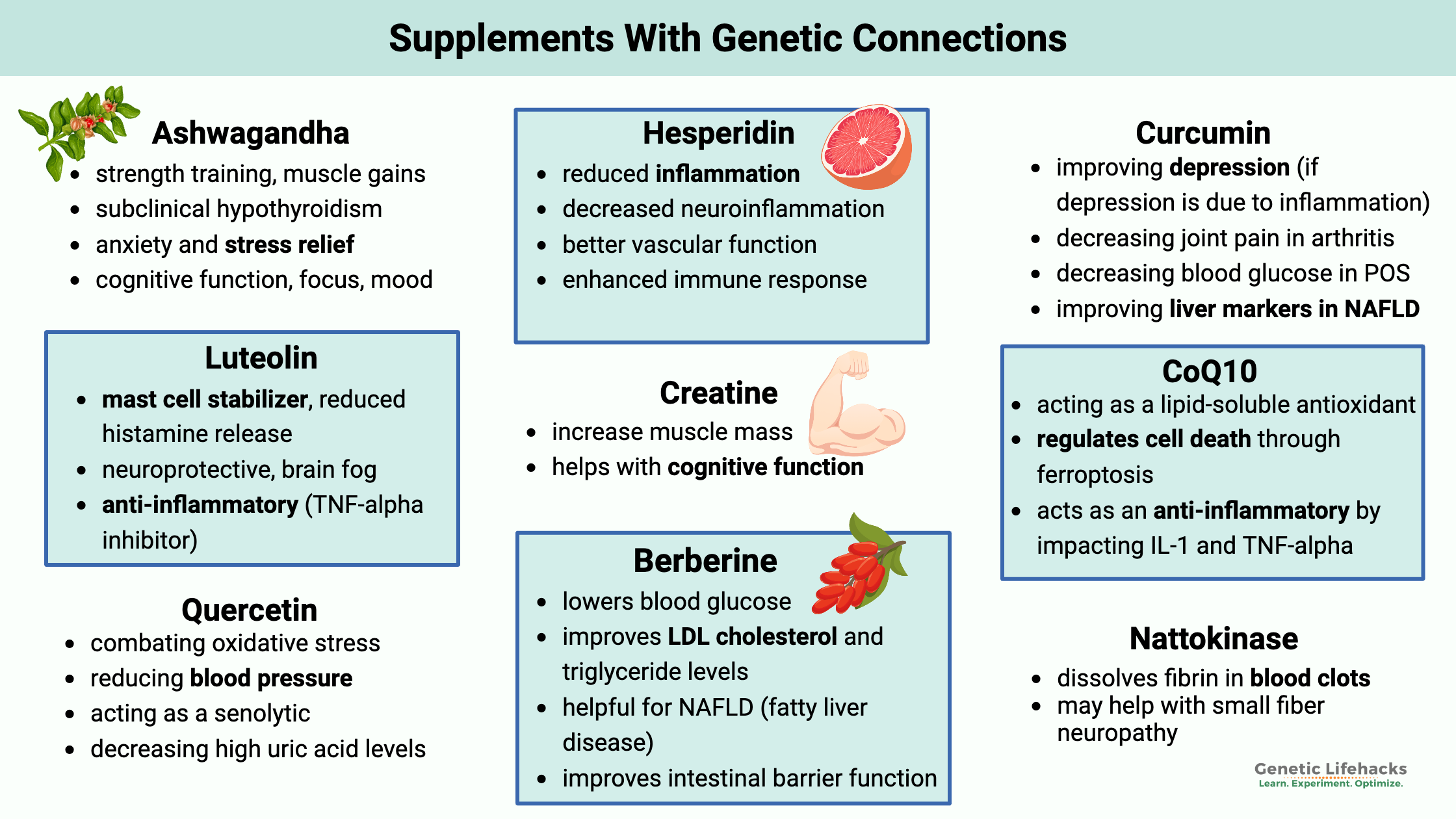
Supplements with Genetic Connections
Linking supplements and genetic SNPs so that you can more easily find out what may work for you – and what to be cautious about.
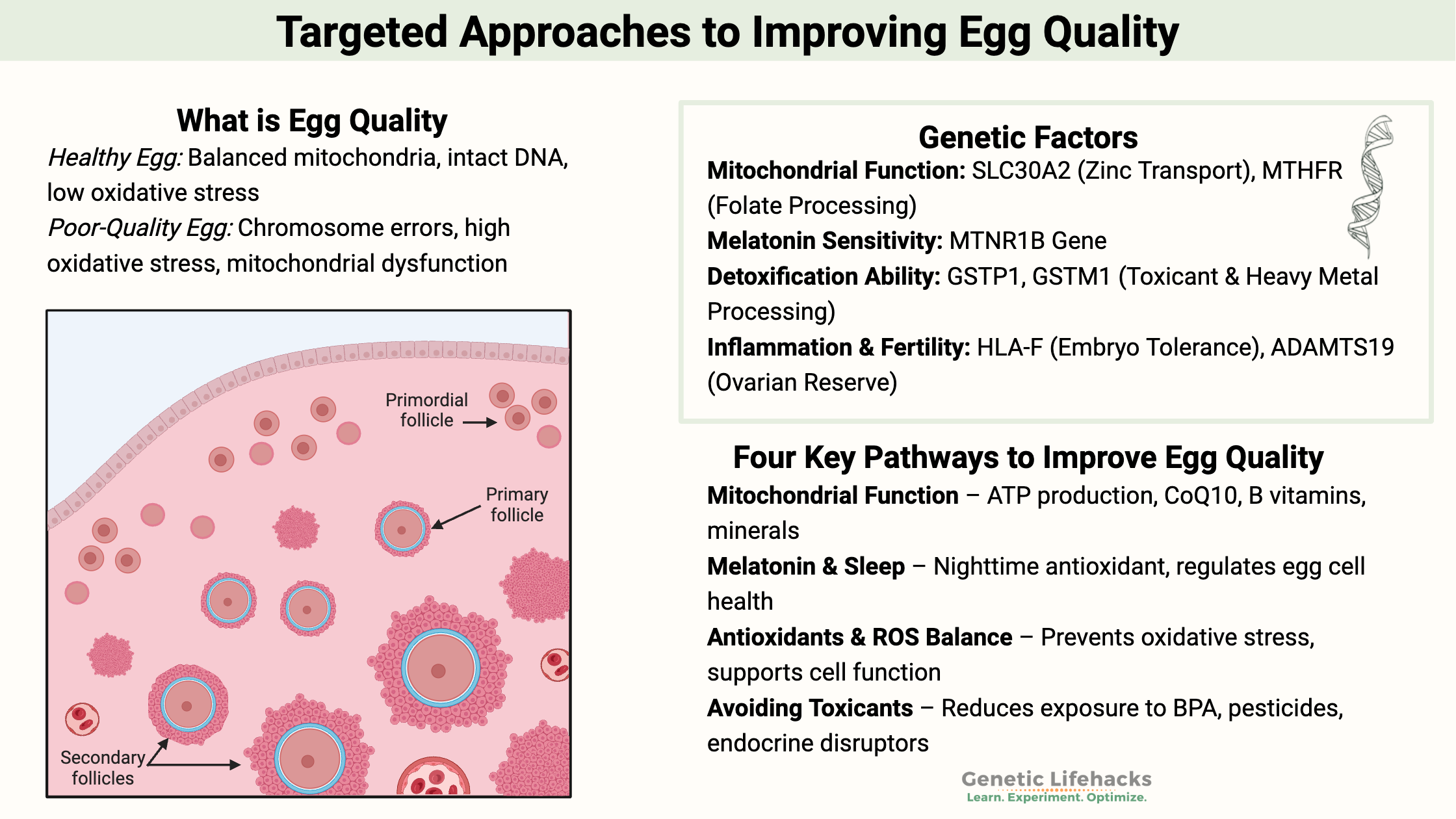
Trying to get pregnant? Targeted Approaches to Improving Egg Quality
Trying to get pregnant? Healthy eggs are vital for a successful pregnancy. Discover four key ways to improve your egg quality, according to research studies.
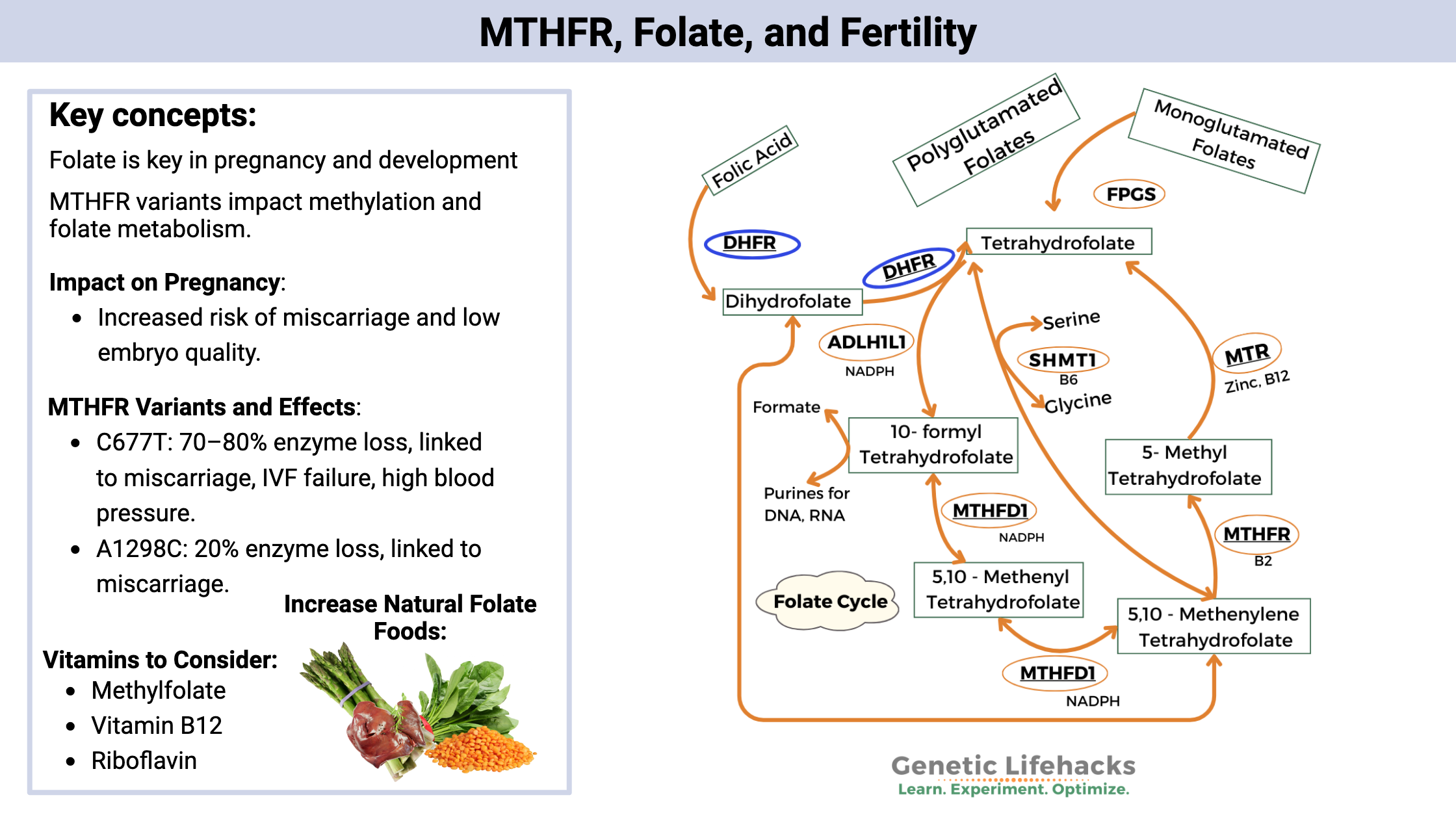
Folate Optimization: MTHFR and Fertility
MTHFR variants affect the conversion of folate into the active form. Learn how this can affect you if you are trying to get pregnant.
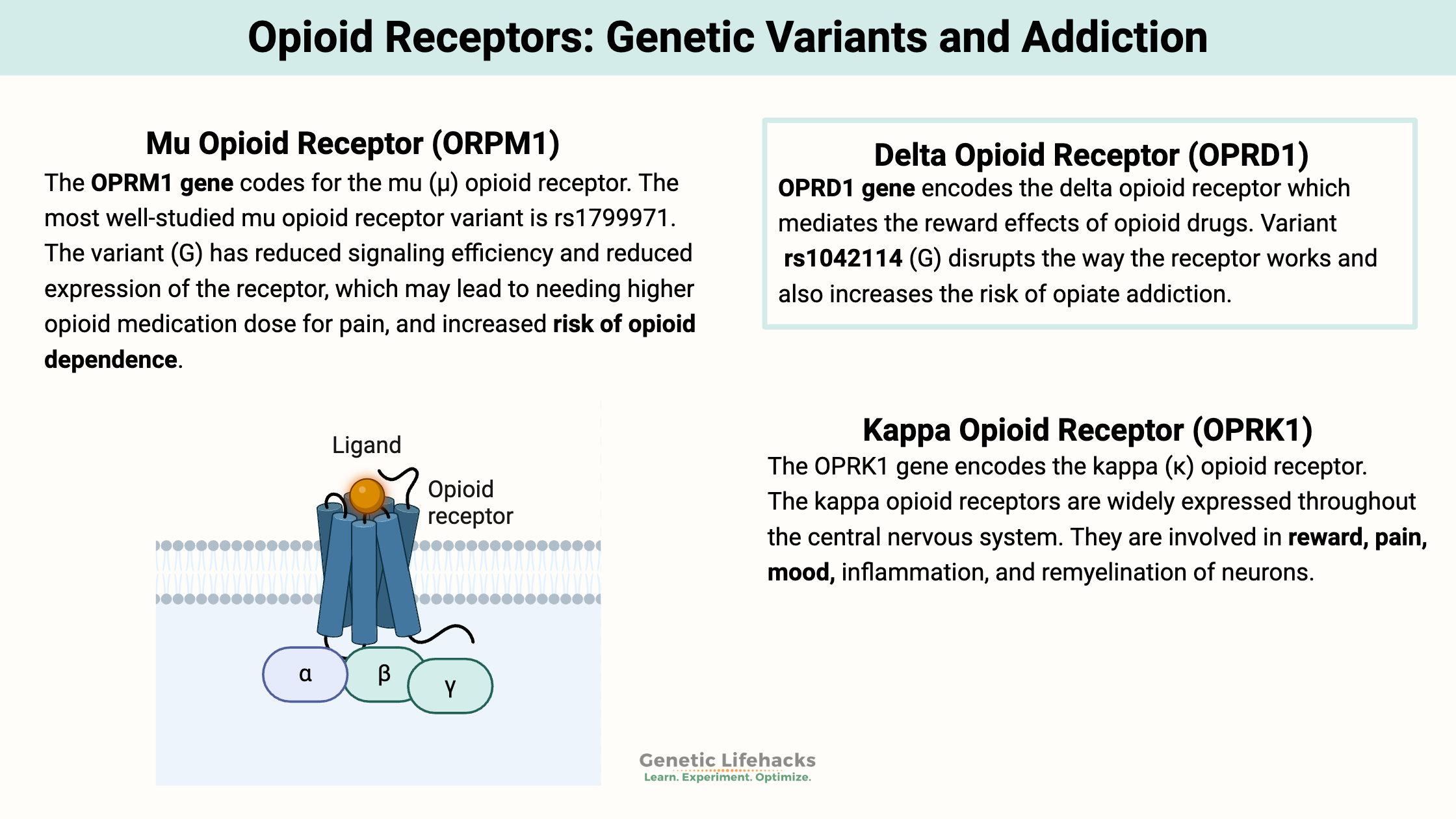
Opioid Receptors Genetic Variants and Addiction
Genetic variants in the ORPM1 gene impact both the amount of pain someone experiences and their response to opioid drugs. These variants are also important in susceptibility to opiate addiction. (Member’s article)
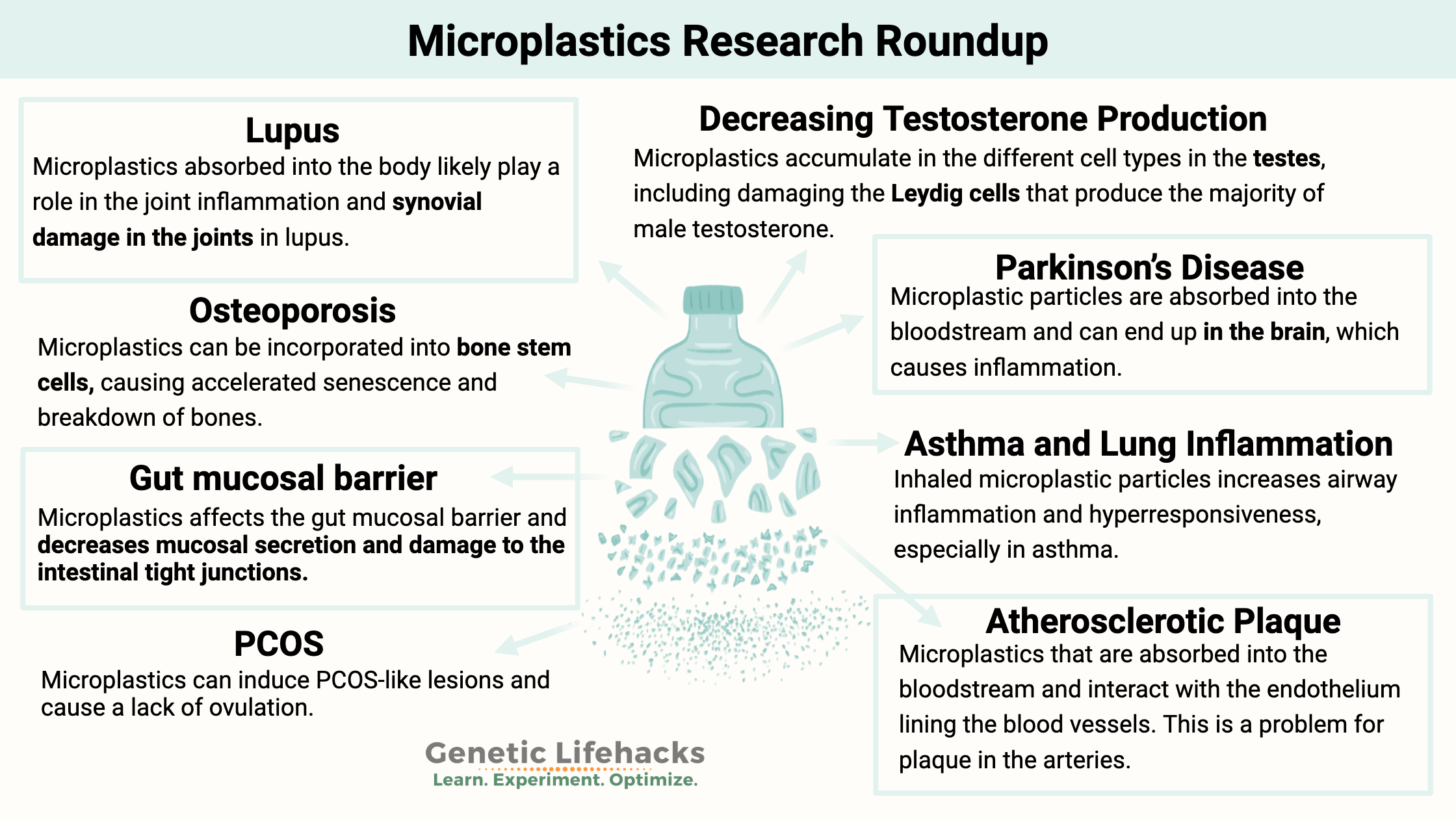
Microplastics Research Roundup
Microplastics research shows that these microscopic bits of plastics are a real problem for health and wellness.
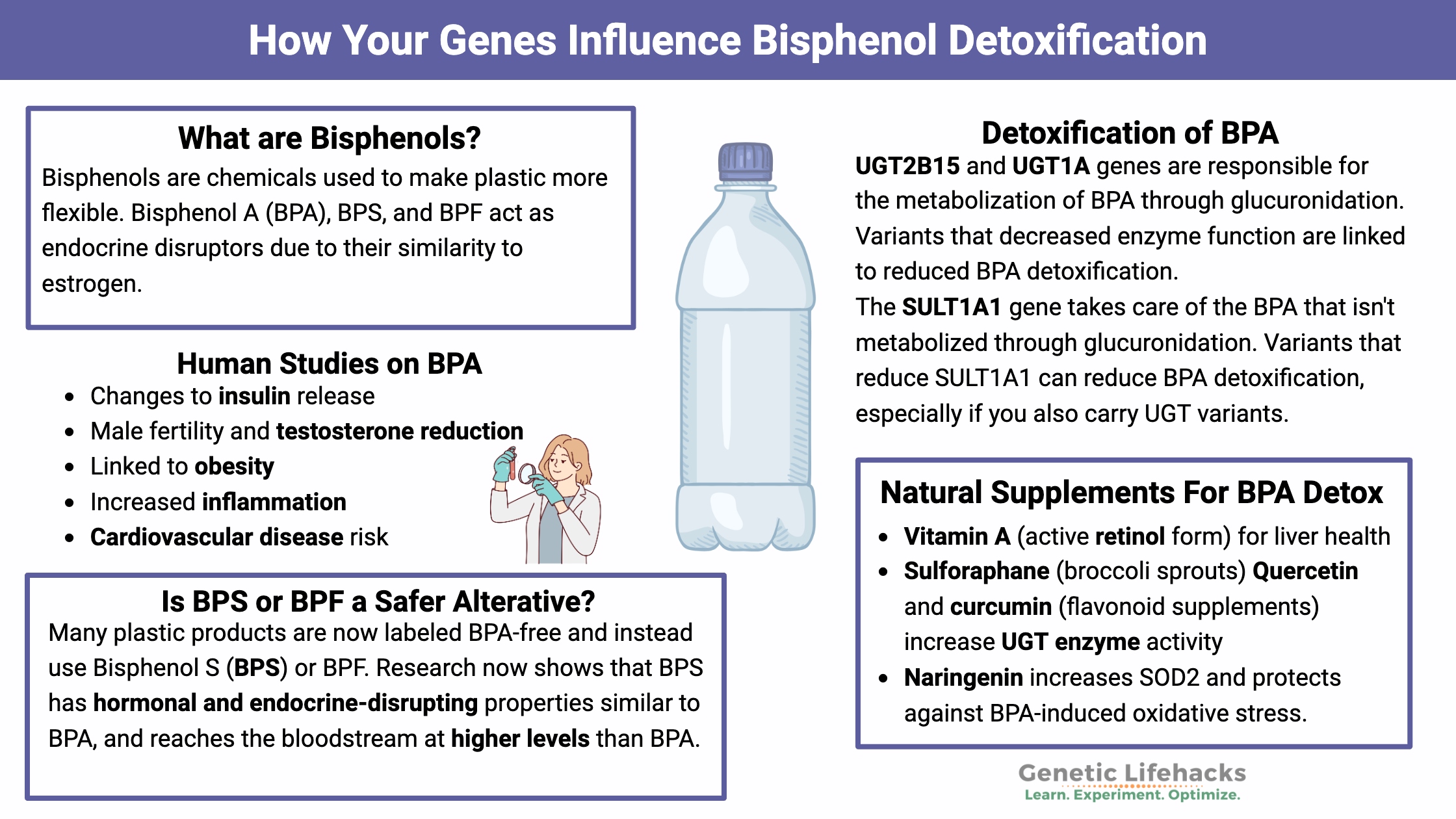
BPA and BPS: How Your Genes Influence Bisphenol Detoxification
BPA, a chemical found in some plastics, has been linked to a variety of health issues in people. Learn more about BPA and the research into genetic responses to this chemical.
// Brain & Mood
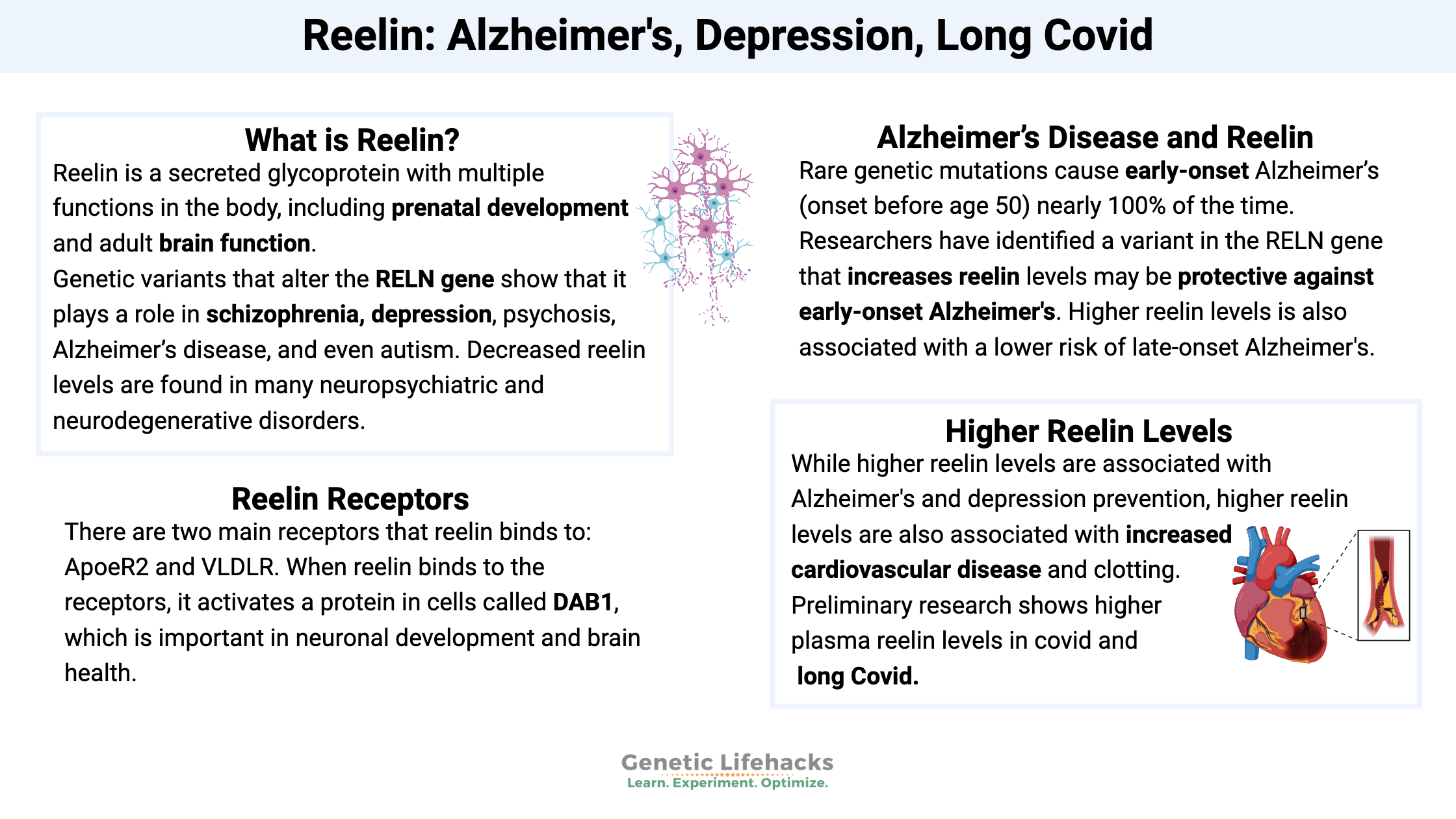
Reelin – Long Covid, Depression, and Alzheimer’s
Reelin is a key glycoprotein involved in brain development, cognition, and neurodegenerative diseases like Alzheimer’s, schizophrenia, autism, and cardiovascular health.
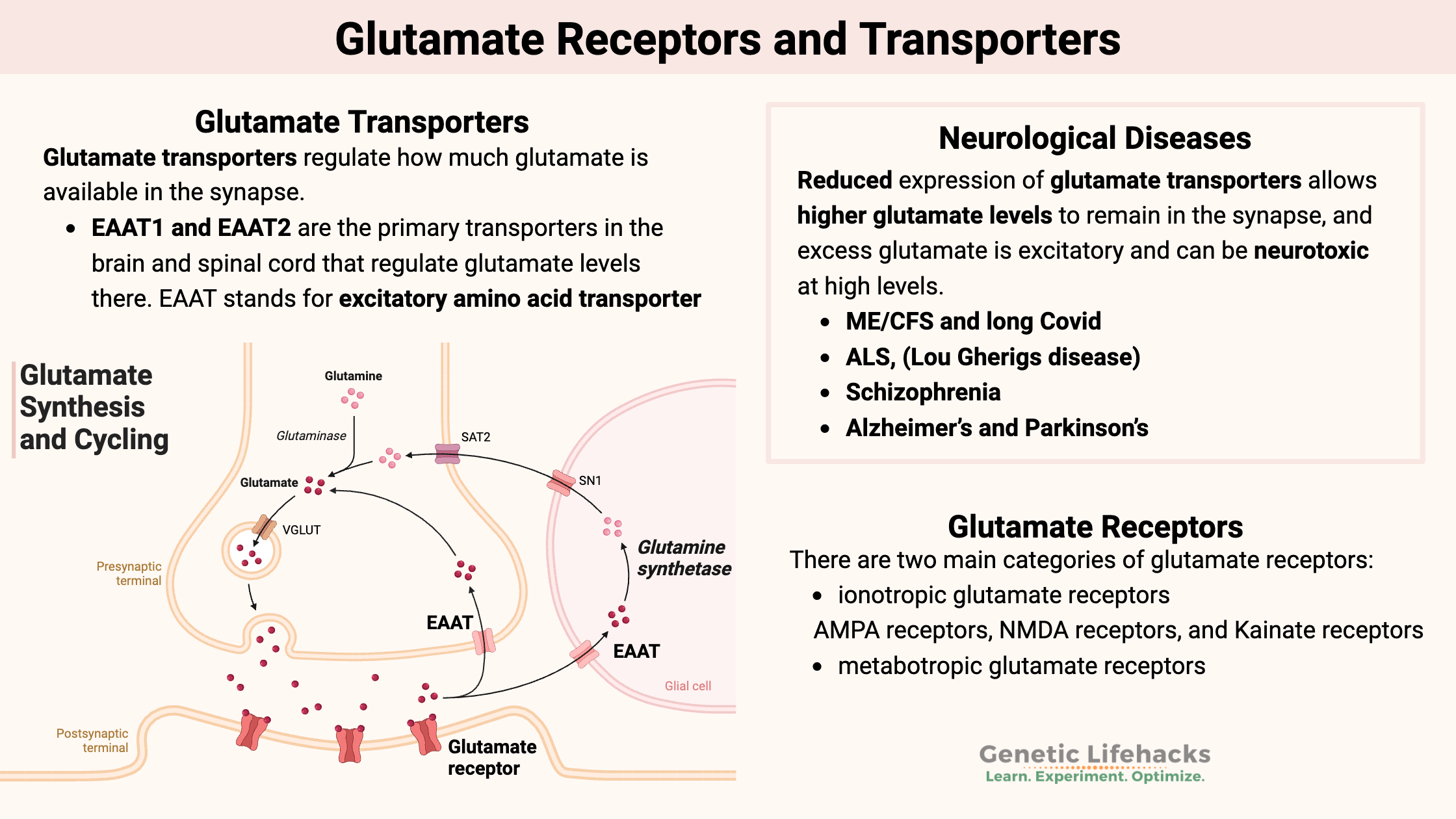
Glutamate Receptors and Transporters
Glutamate transporters and receptors carefully balance glutamate levels in the brain. Variants in the glutamate genes can affect how your brain balances glutamate.

Opioid Receptors Genetic Variants and Addiction
Genetic variants in the ORPM1 gene impact both the amount of pain someone experiences and their response to opioid drugs. These variants are also important in susceptibility to opiate addiction. (Member’s article)
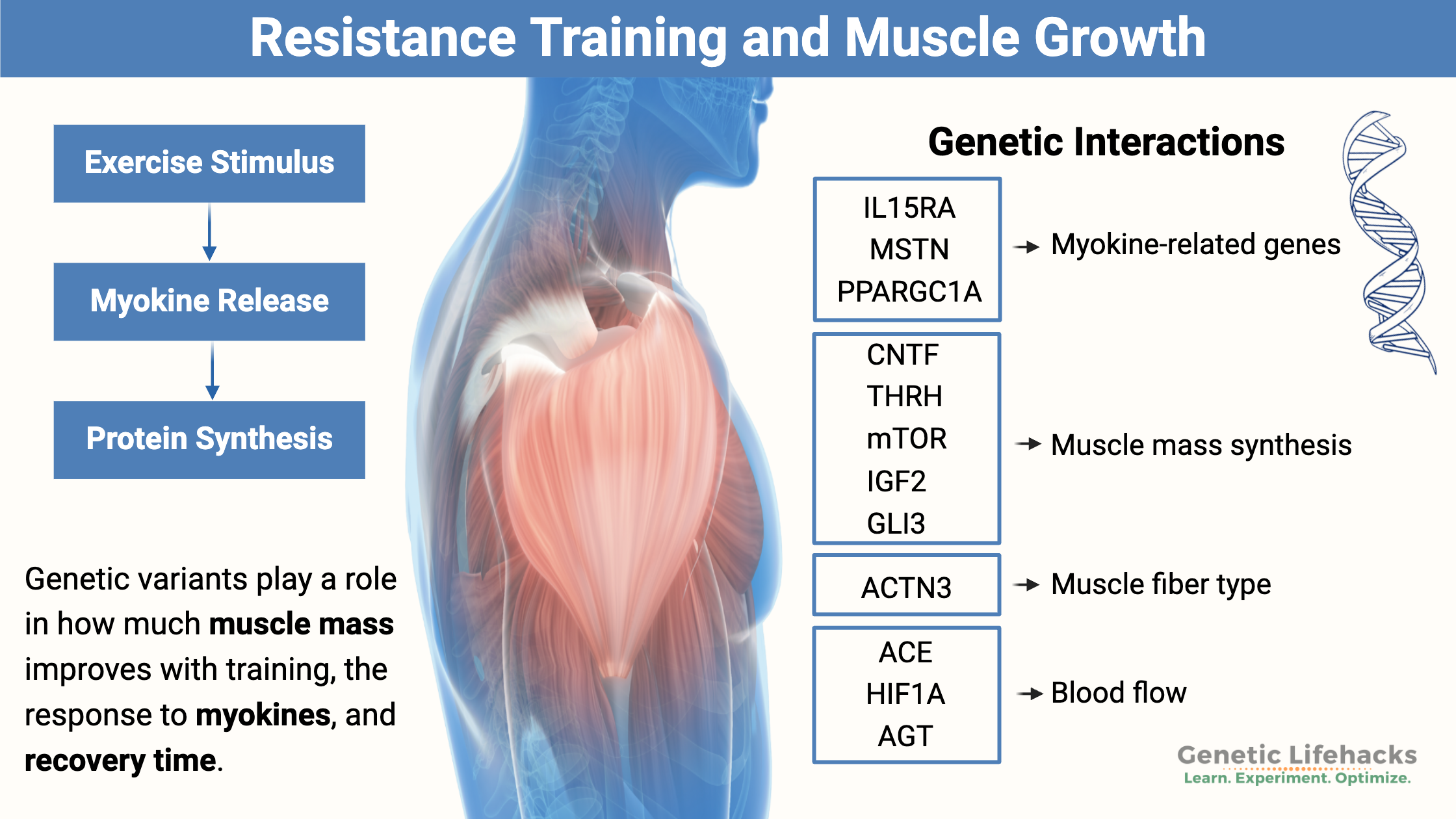
Resistance Training Genetics: Personalized Muscle Building
Learn how genetics and lifestyle factors influence muscle growth from resistance training. Covers the science behind strength gains, from molecular pathways to genetic applications backed by research.
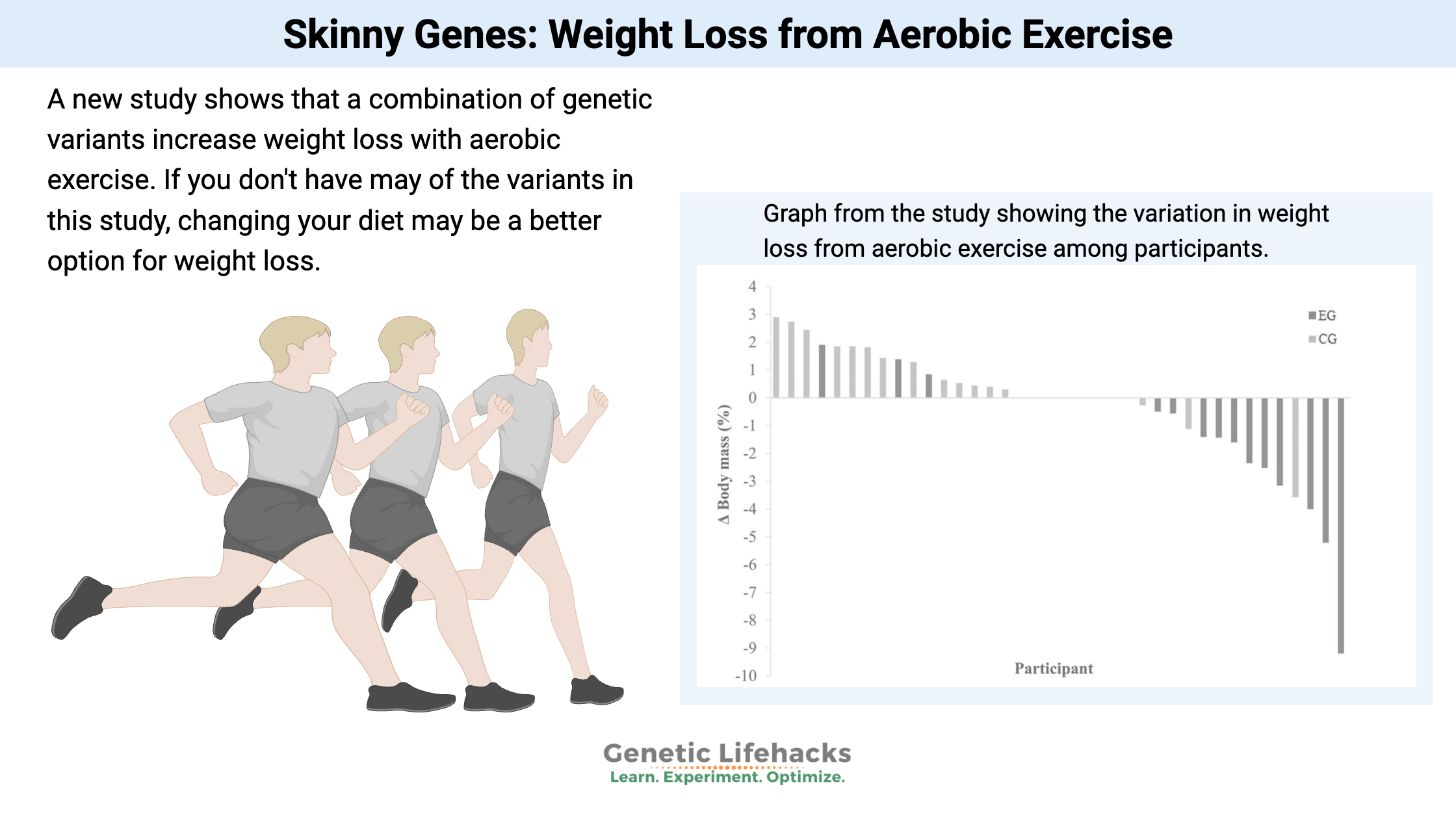
Skinny Genes: Weight Loss from Aerobic Exercise
Researchers have found that weight loss from aerobic exercise depends on your genetic variants. Find out if you have skinny genes from exercise.
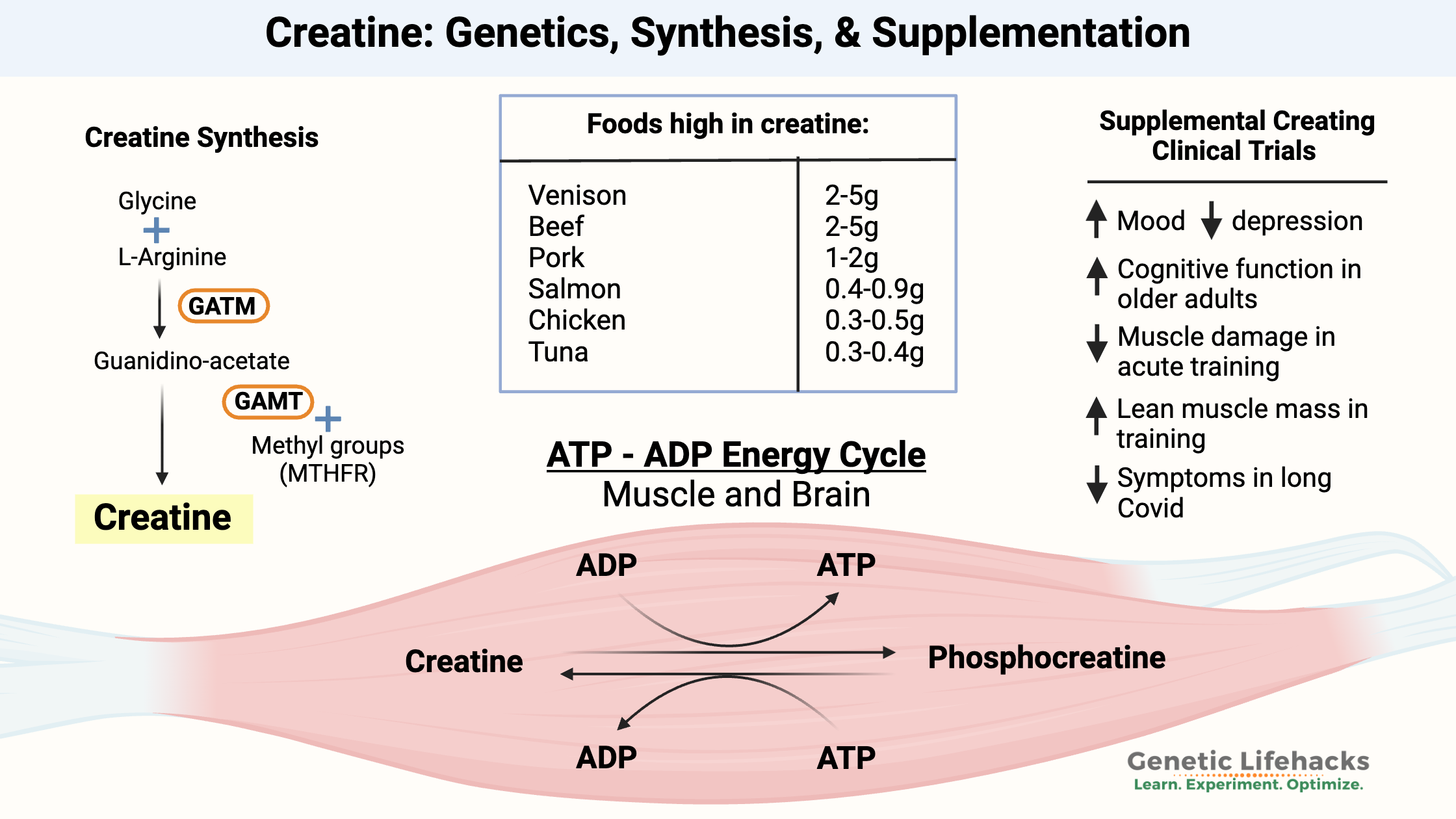
Creatine: Boosting Muscles and Increasing Brain Power
Creatine is an amino acid used in muscle tissue and the brain for energy in times of stress. Genes play a role in creatine synthesis. Find out what the research shows about creatine supplements for muscle mass and cognitive function.
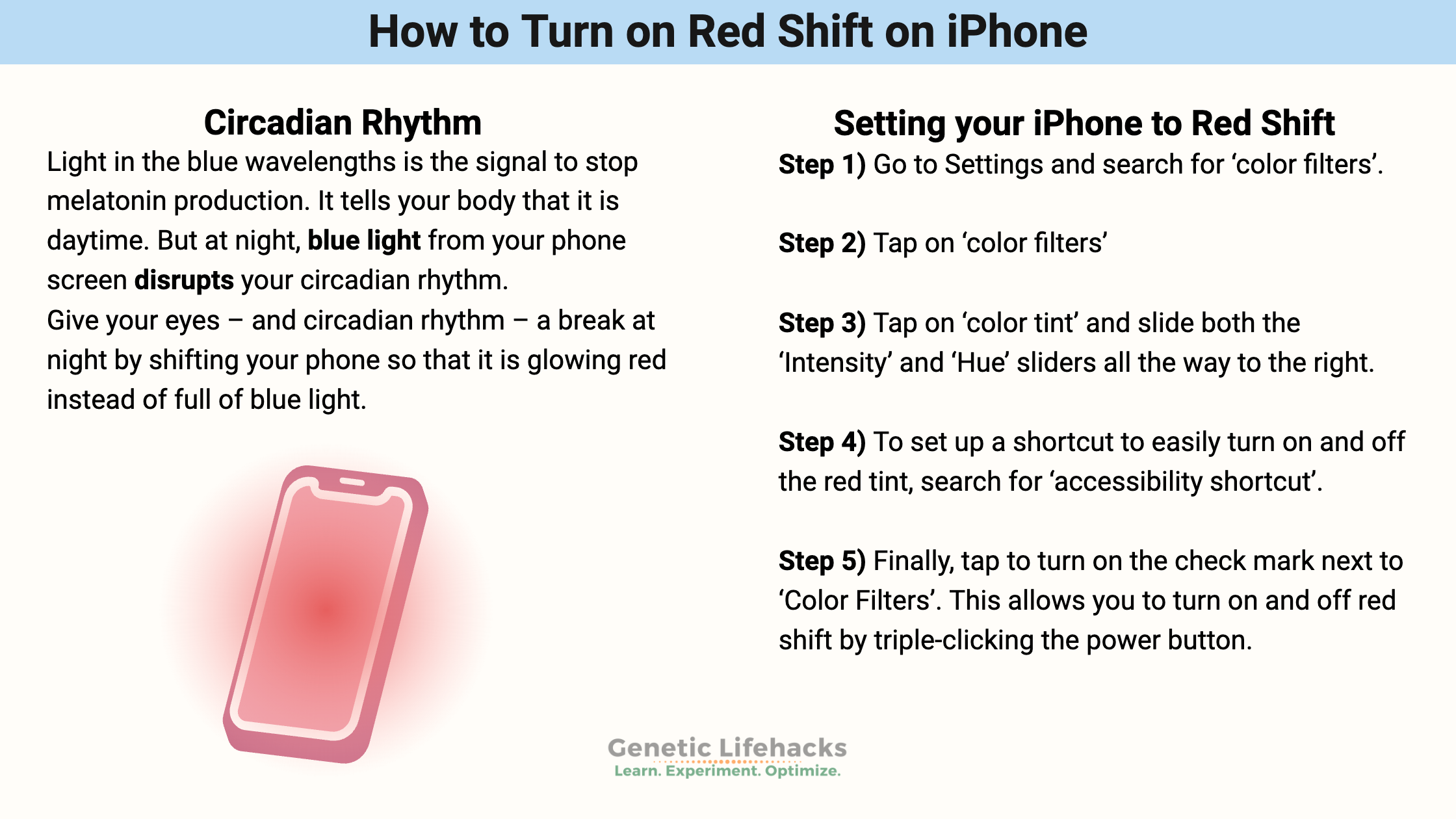
How to Shift Your iPhone Screen to Red at Night
Learn how to shift your iphone screen to be completely red at night (no blue light) with a triple-click of the power button.
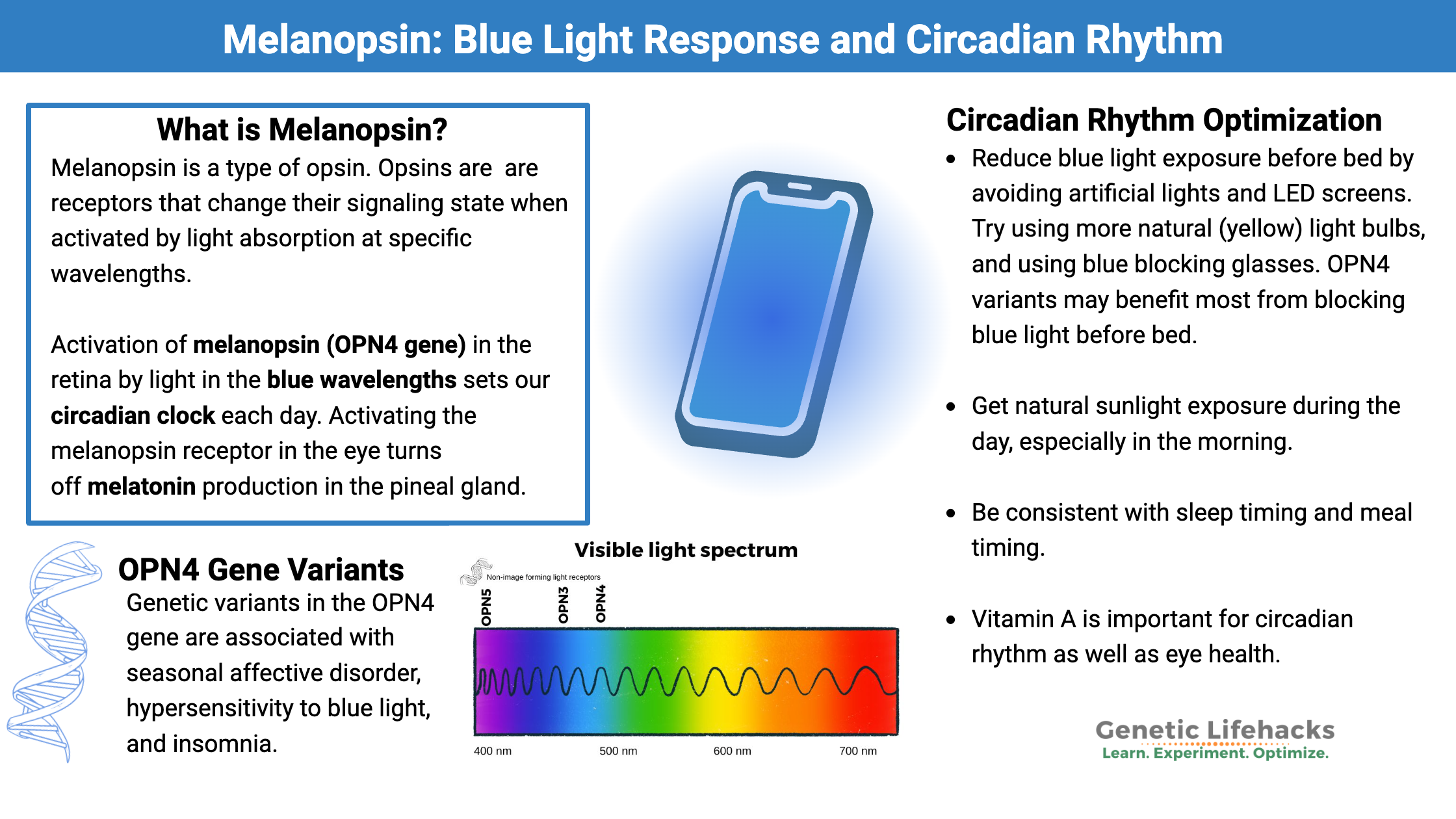
Melanopsin: Light response, Circadian Rhythm, and Blue Light Exposure
Melanopsin is the receptor for blue light. It is found in the retina, skin, adipose tissue, and blood vessels. Genetic variants can impact reaction to blue light.
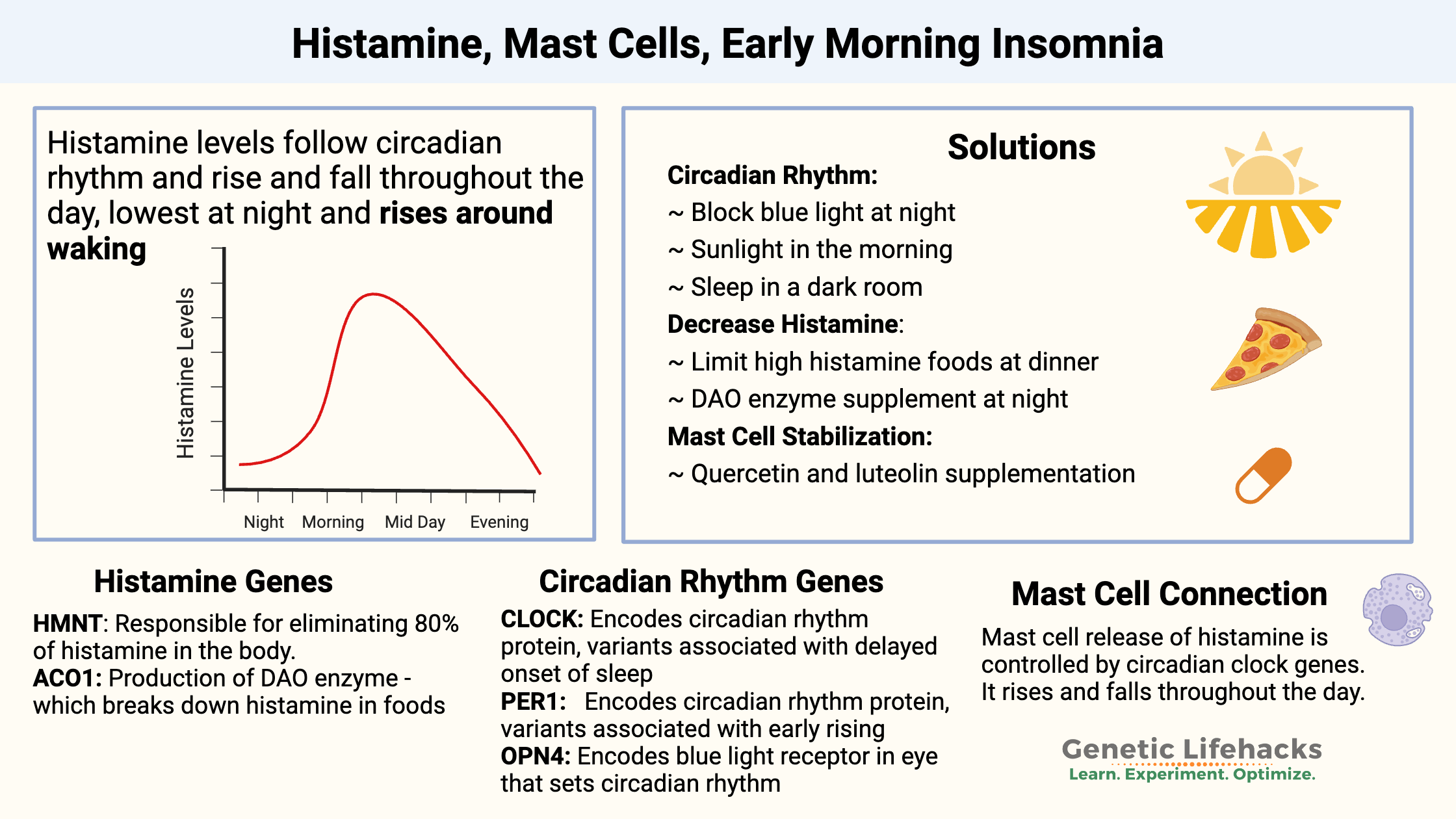
Histamine, Mast Cell Activation, and Early Morning Insomnia
Histamine rising in the early morning hours may cause early waking insomnia. Mast cells and circadian rhythm disruption at the root.
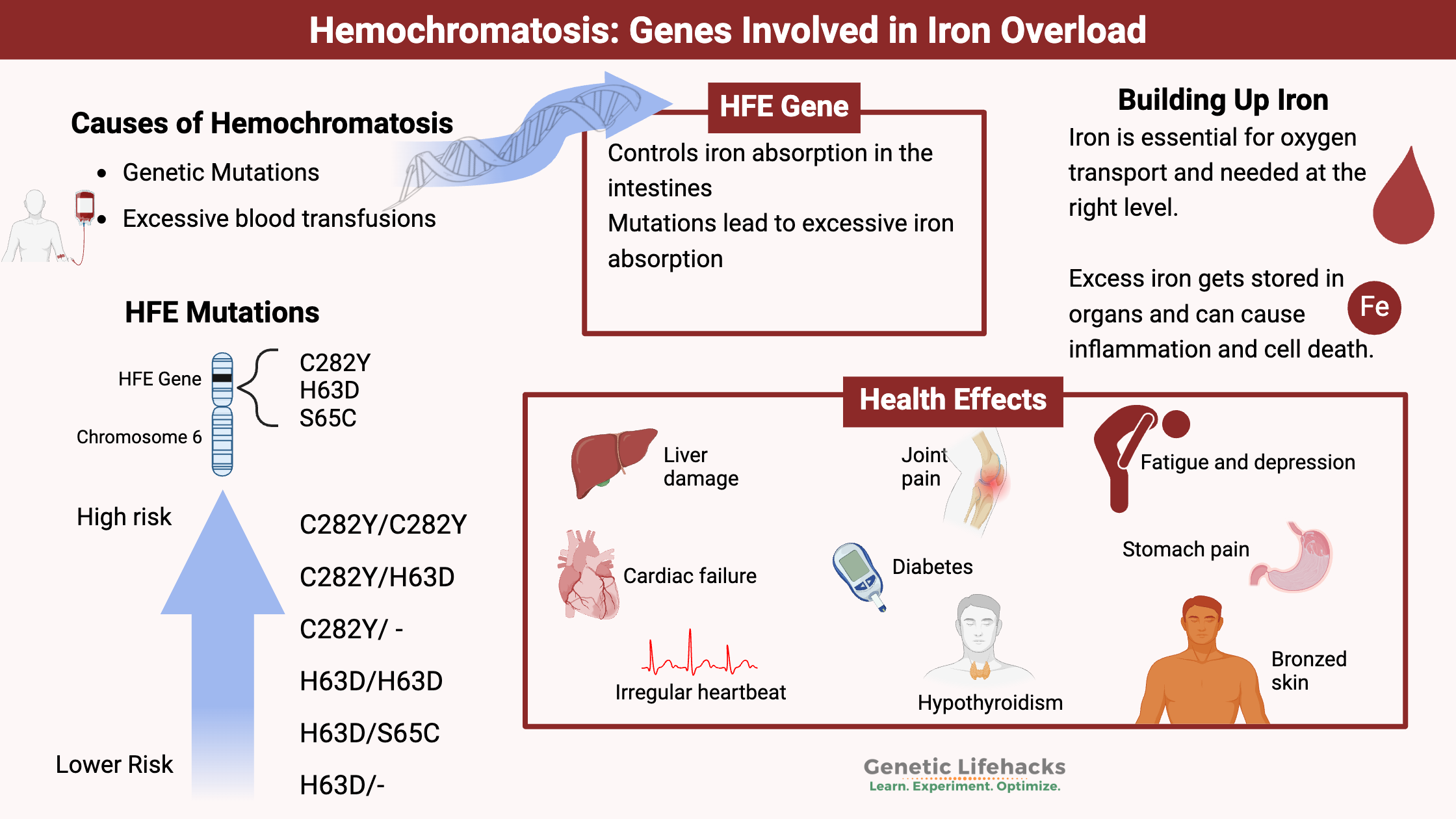
Building Up Iron: Hemochromatosis mutations
A couple of common mutations can cause you to build up iron, leading to iron overload or hemochromatosis. It is one genetic disease where knowledge is really powerful – you can completely prevent hemochromatosis through blood donations.

BPIFB4 Gene: Linked to Longevity and Heart Health
Discover the impact of the BPIFB4 gene on longevity and immunity, and find out if you have the longevity variant in your genotype report.
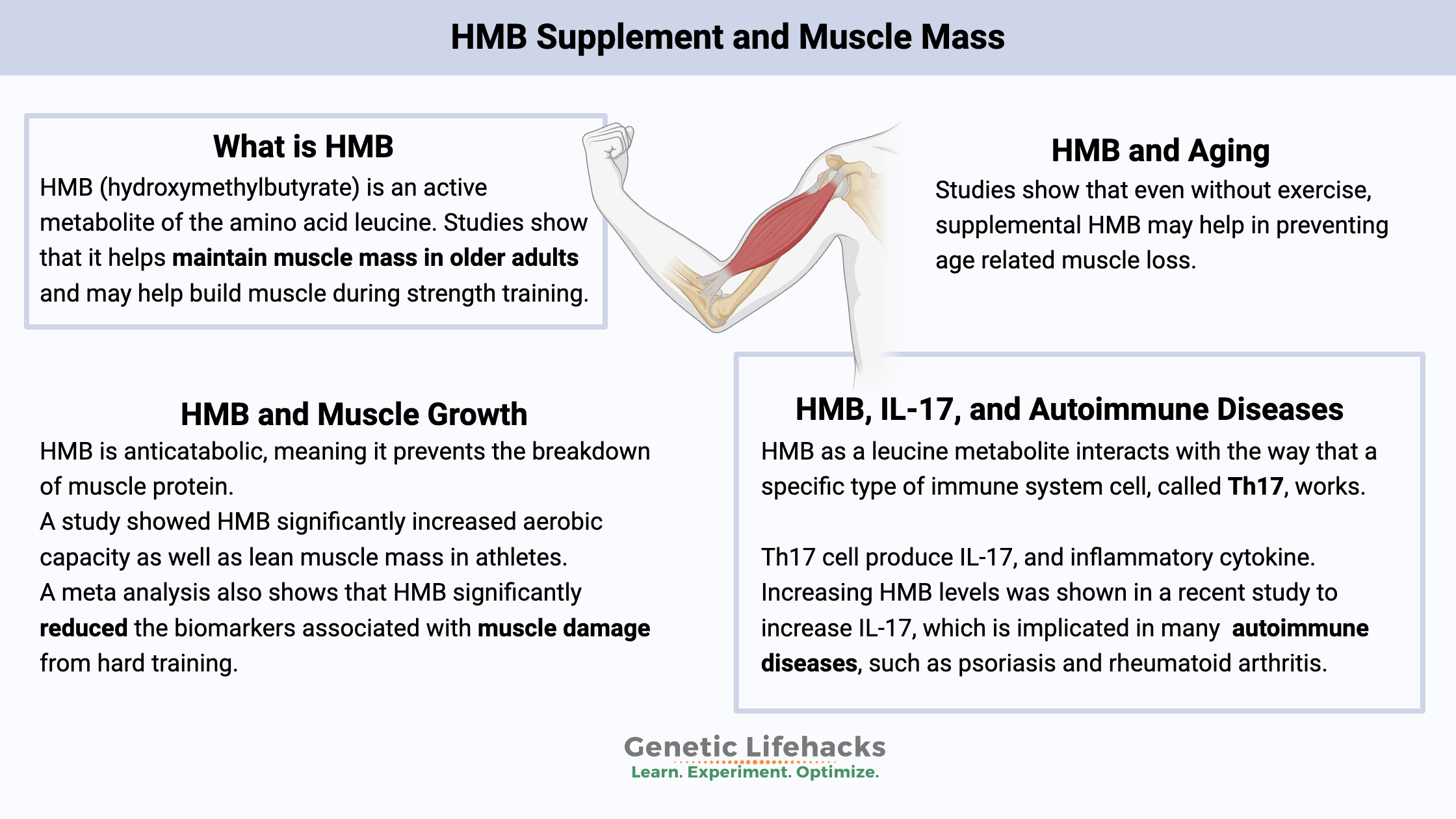
HMB Supplement and Muscle Mass
HMB – hydroxymethylbutyrate – is a supplement that helps to prevent muscle loss in aging and may help with building muscle when working out.
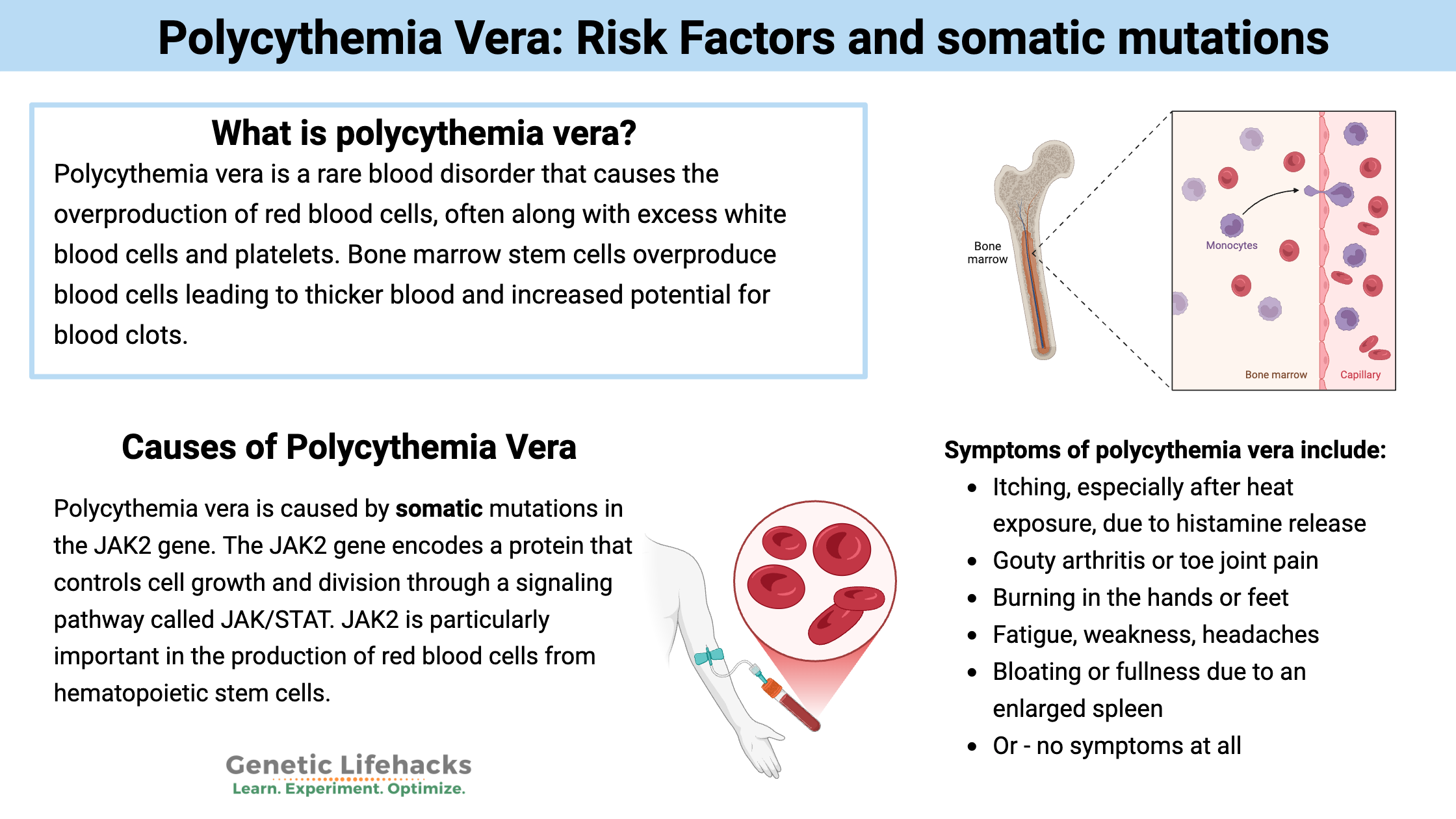
Polycythemia Vera: Risk Factors and Somatic Mutations
Polycythemia vera is a rare blood disorder caused by a mutation that arises during your life, however, inherited genetic variants can increase susceptibility.
// Traits

Skinny Genes: Weight Loss from Aerobic Exercise
Researchers have found that weight loss from aerobic exercise depends on your genetic variants. Find out if you have skinny genes from exercise.
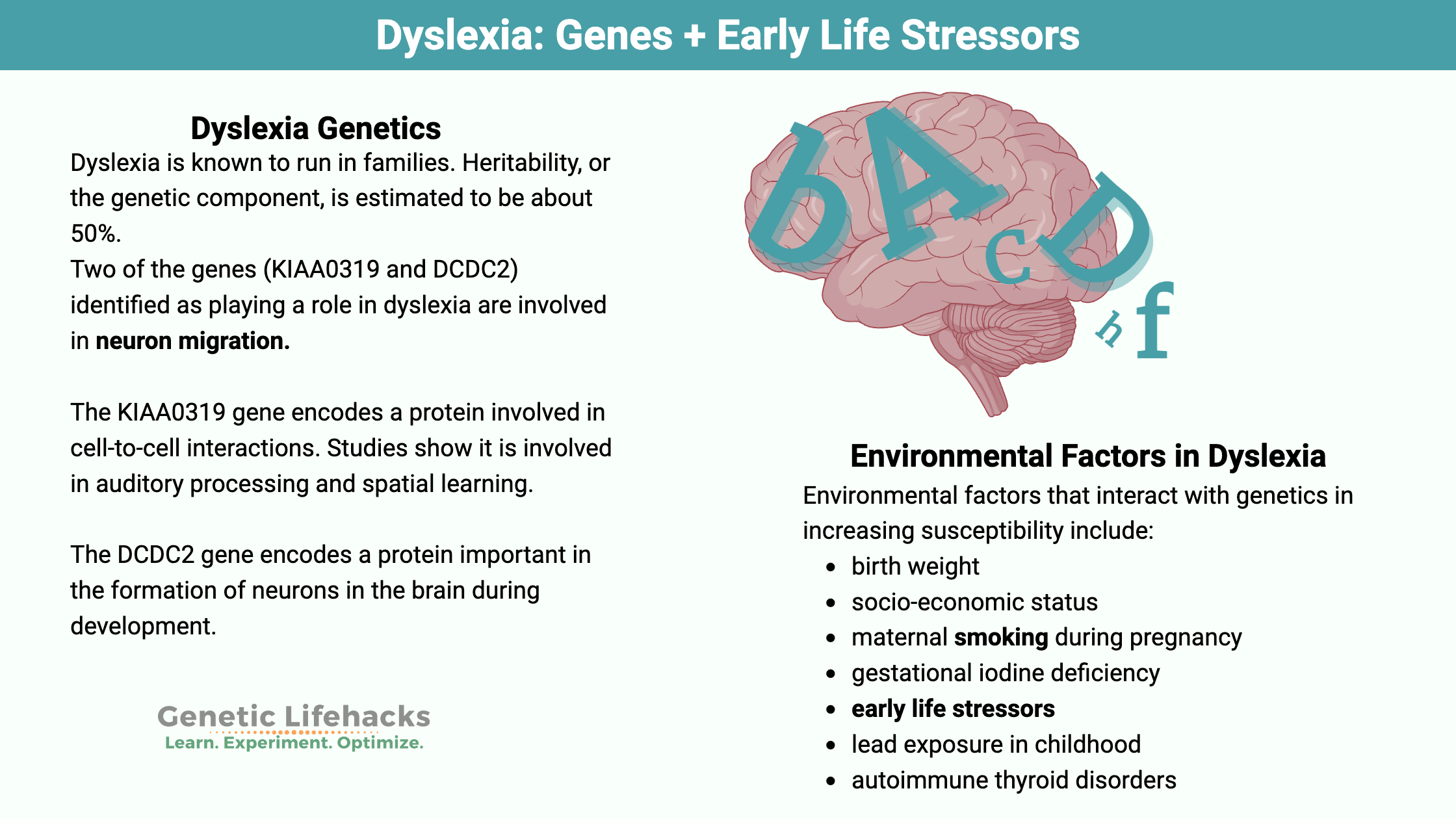
Dyslexia: Genes + Early Life Stressors
While dyslexia is known to run in families, the role of genetics in dyslexia is still being determined. Here is a quick look at some of the genes involved in dyslexia, affecting around 10% of the population.
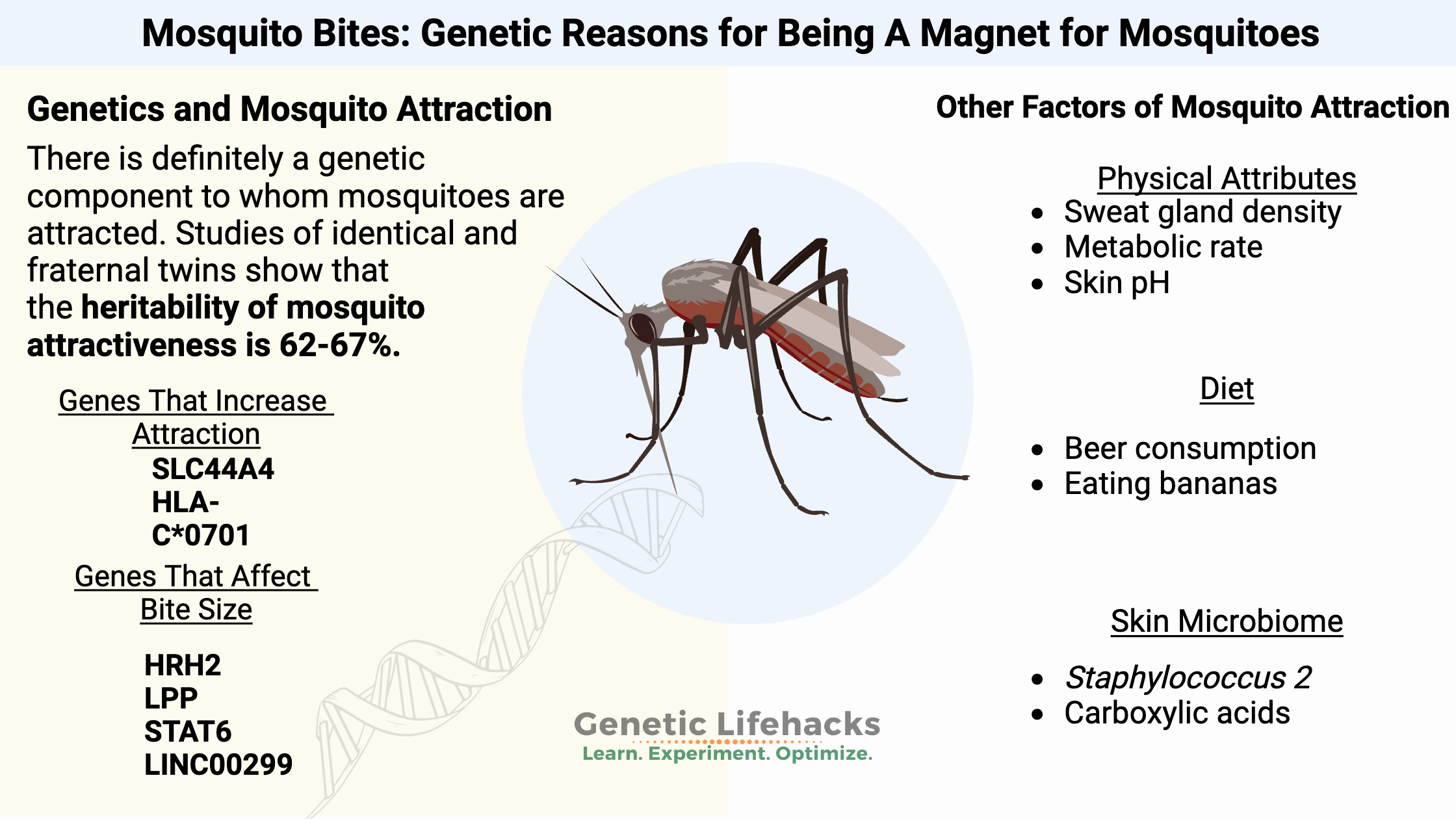
Mosquito Bite Genes: Are you a mosquito magnet?
Do you feel like you are a magnet for mosquitoes? Genetic variants do play a role in how attractive you are to mosquitoes.
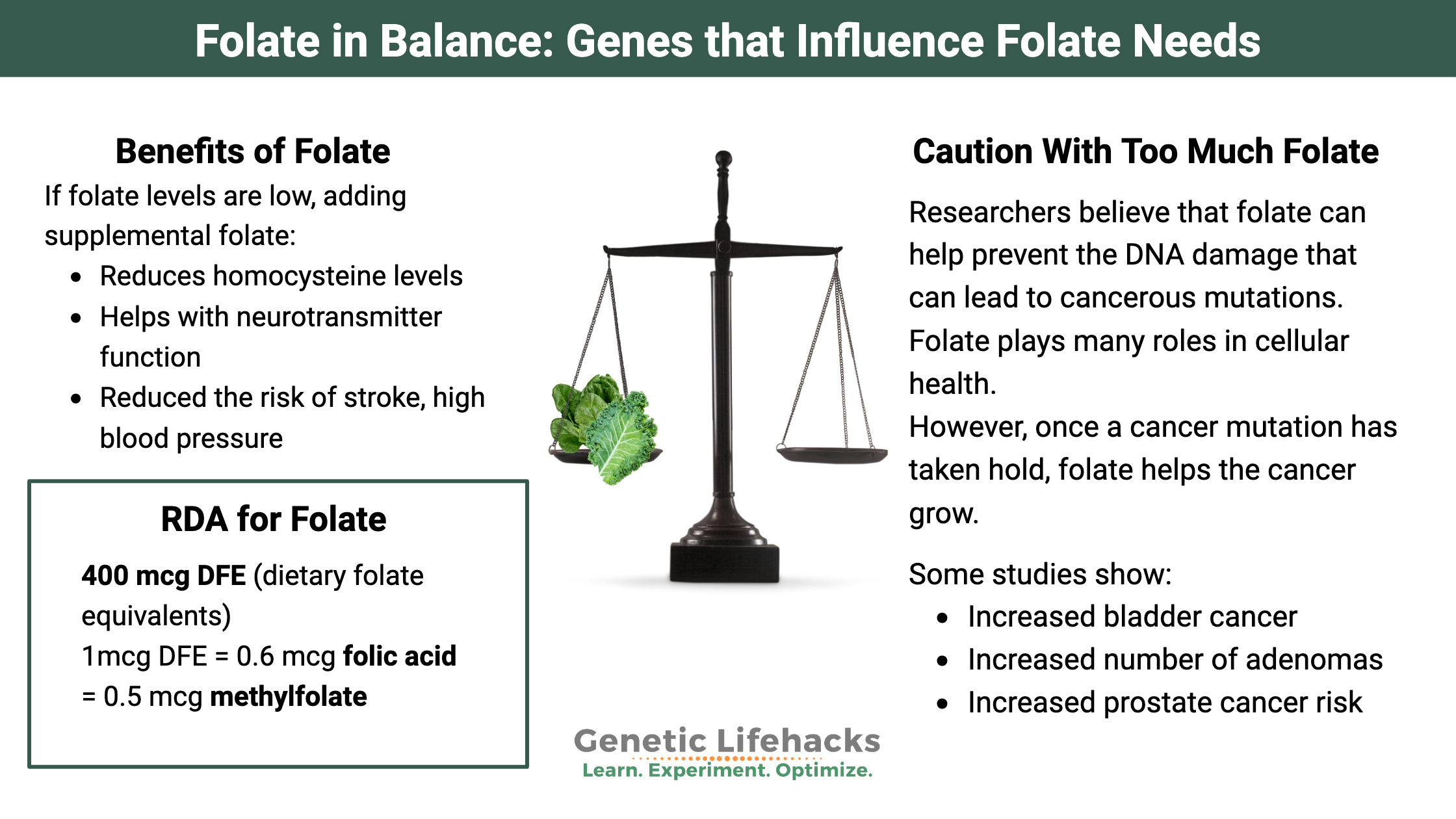
Are You Getting Too Much Folate?
Folate is an essential vitamin with many benefits from getting an adequate amount. However, excess folate from high dose supplements may have potentially detrimental effects.
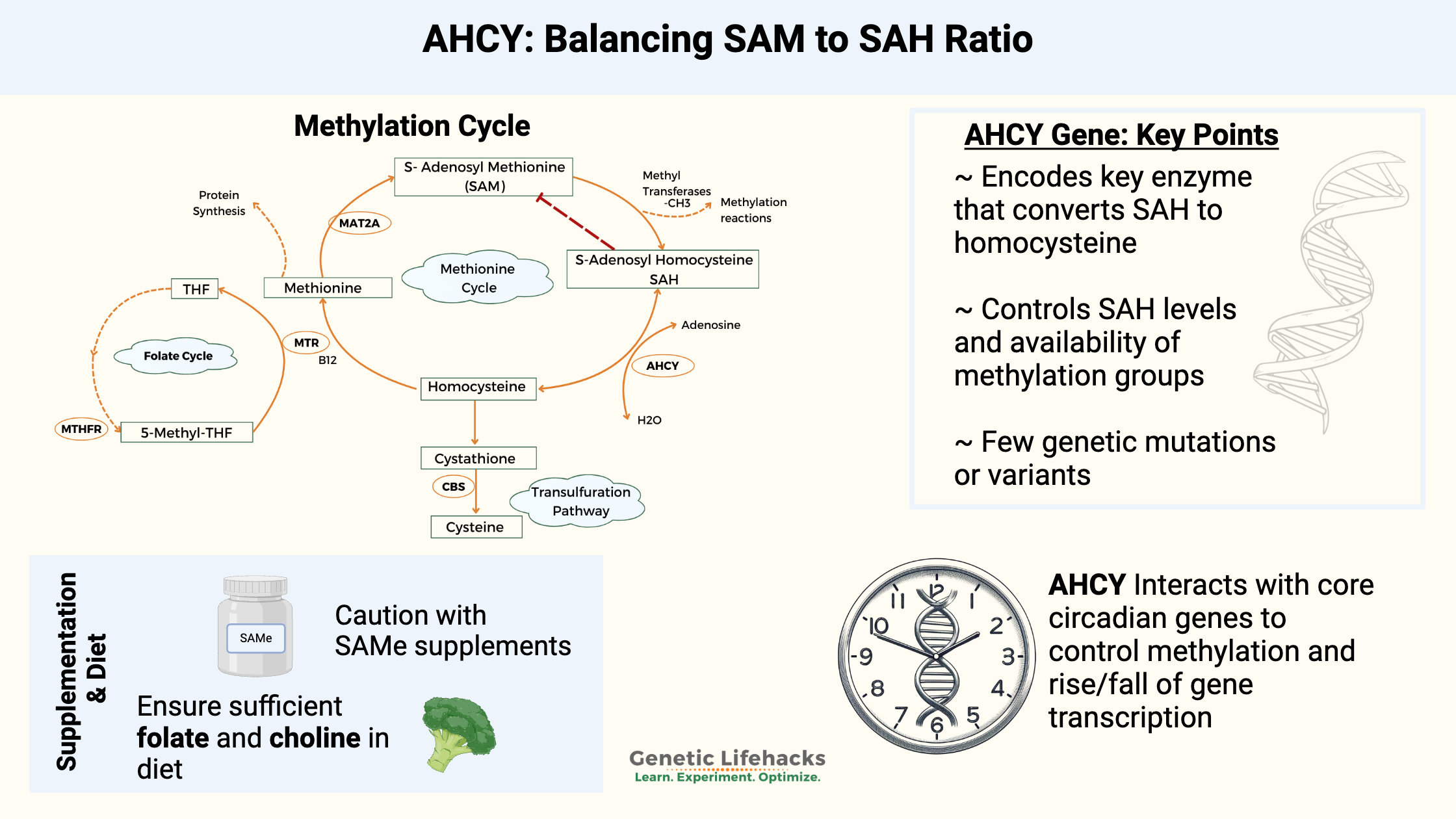
AHCY Gene: Tying together methylation and homocysteine
AHCY is a key gene in the conversion of SAH to homocysteine and in the regulation of the SAM/SAH ratio. It also plays an important role in the circadian regulation of gene expression.
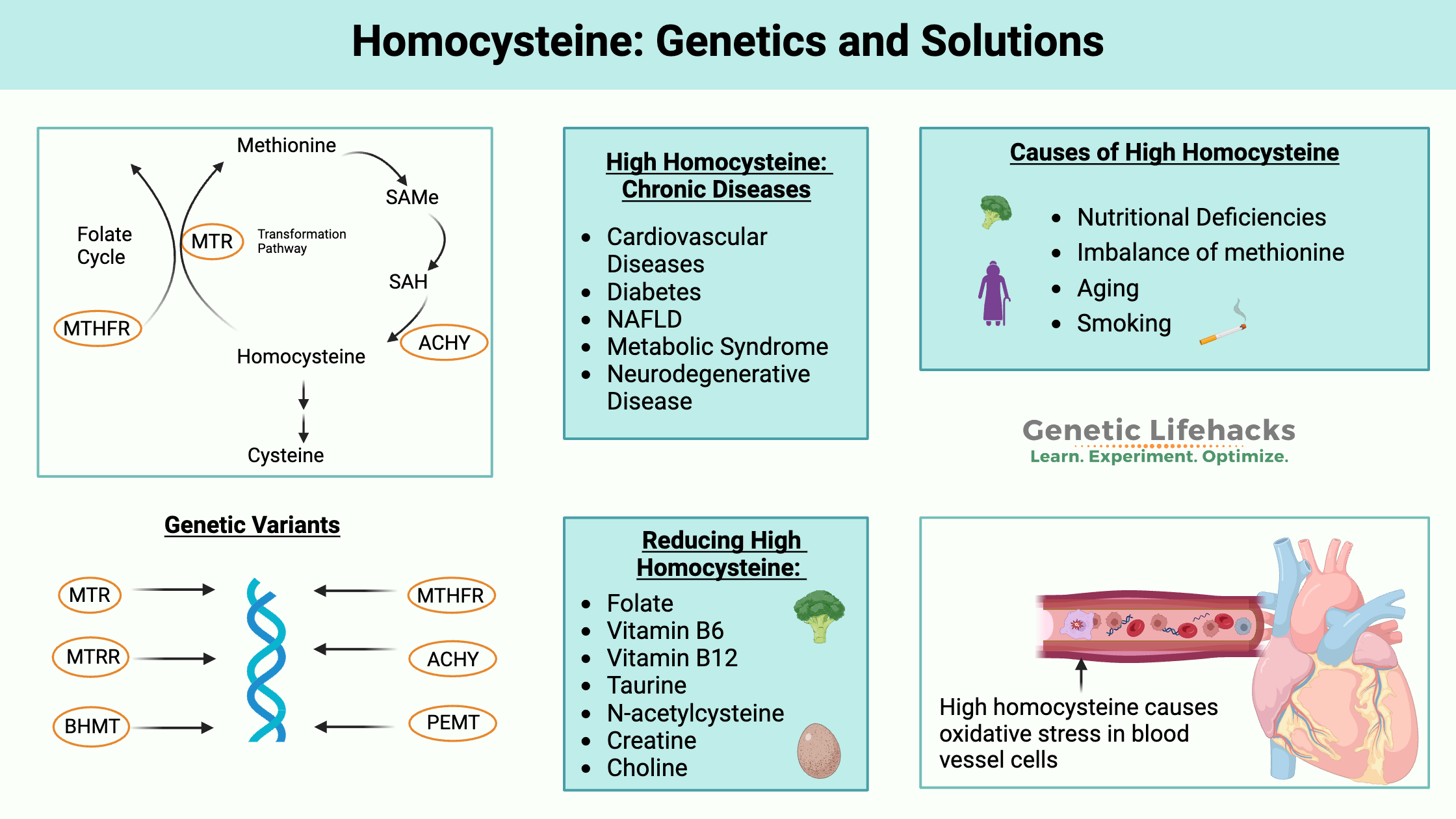
Homocysteine: Genetics, High Homocysteine Levels, and Solutions
High homocysteine levels are strongly linked to an increased relative risk of cardiovascular diseases. Find out how your genes impact homocysteine levels.
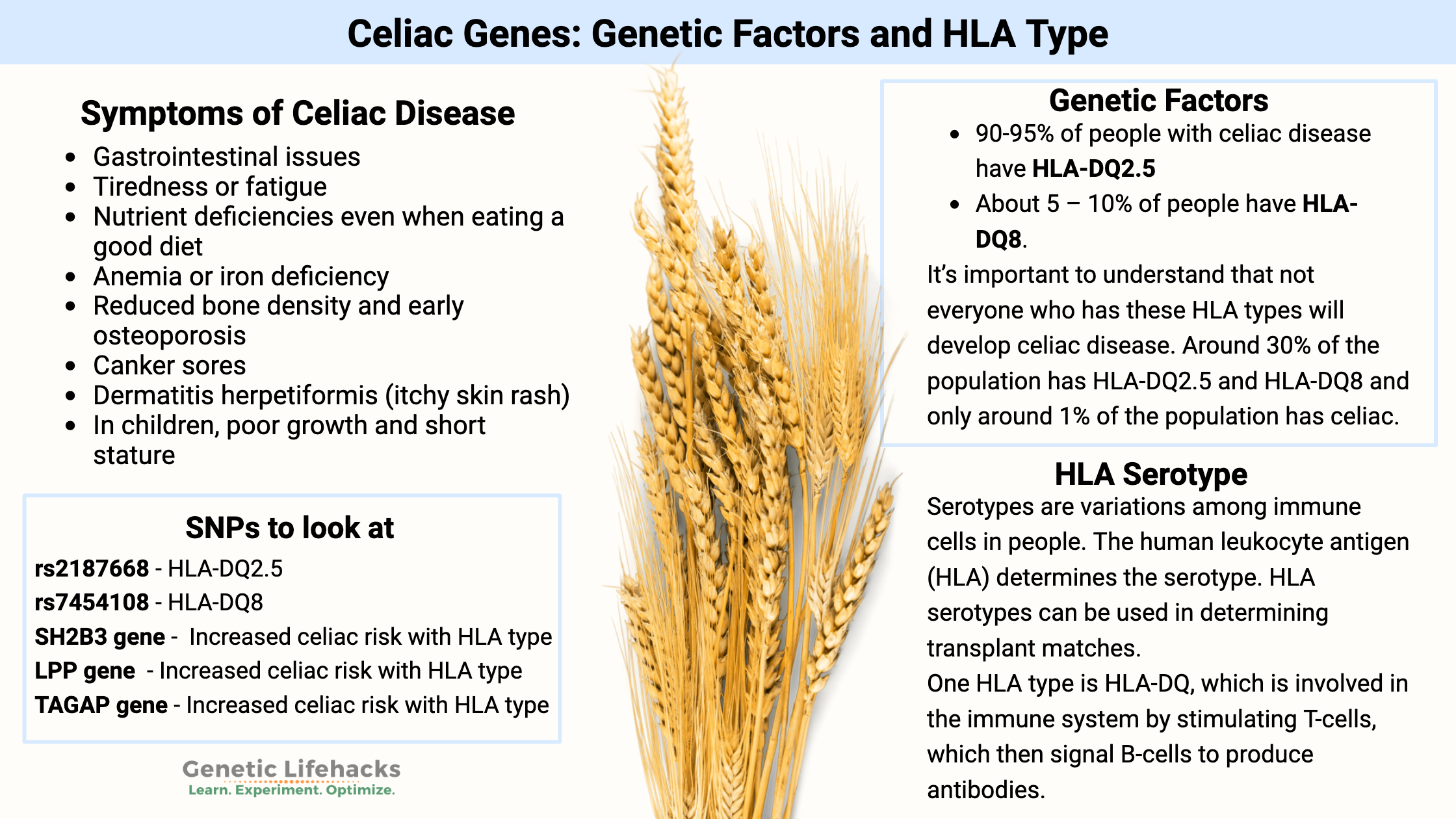
Celiac Genes: How to Check Your Raw Data
Celiac disease is caused by a combination of environmental factors (eating gluten, other factors) and having the genetic variants that cause susceptibility to the disease. Without the genetic susceptibility, you won’t have celiac.
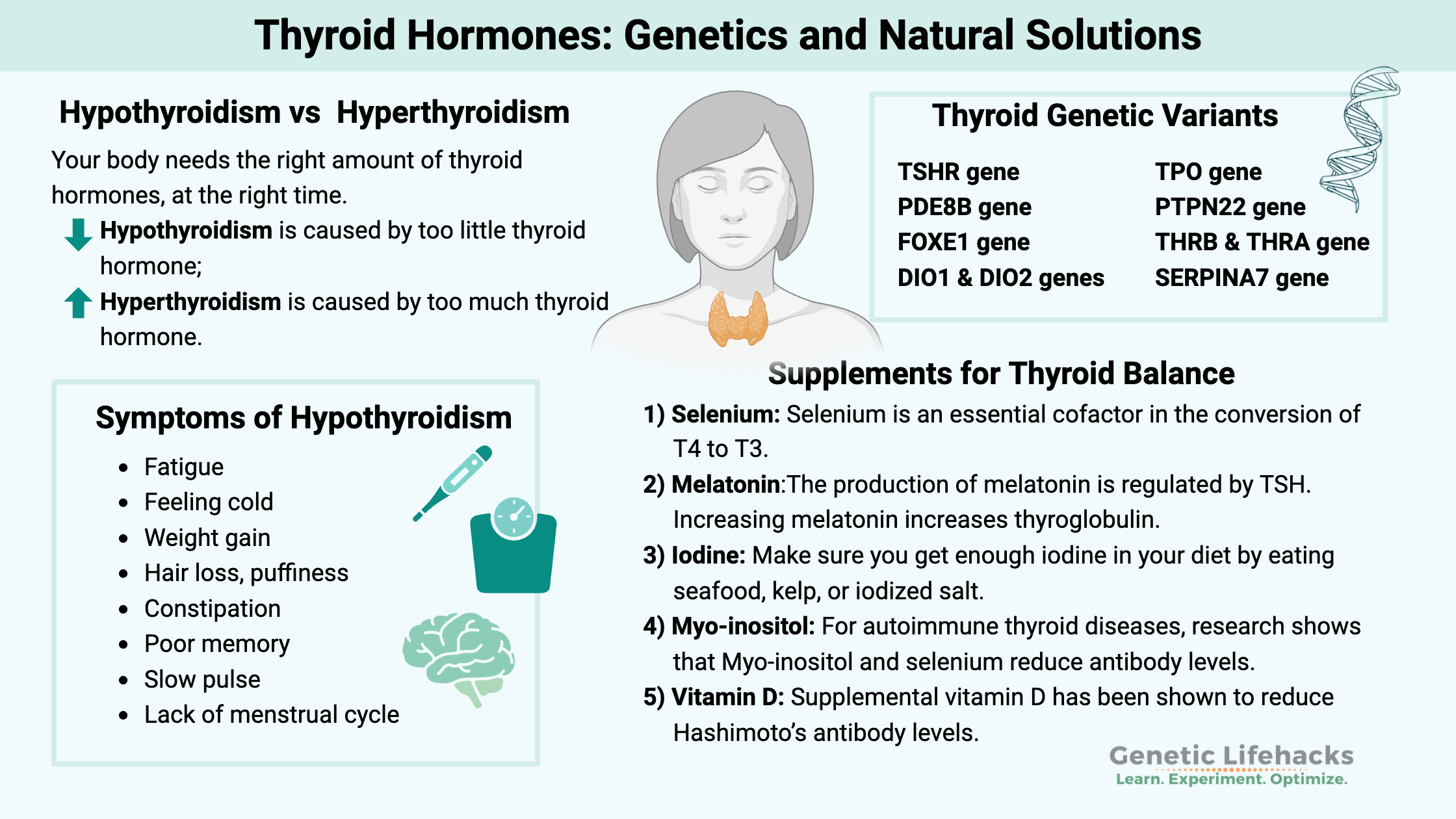
Thyroid Hormones: Genes, Hypothyroidism, and T4/T3 Conversion
The thyroid is a master regulator controlling many of your body’s systems. It is integral for metabolism and body temperature. Learn more about specific thyroid-related variants and check your genetic raw data.
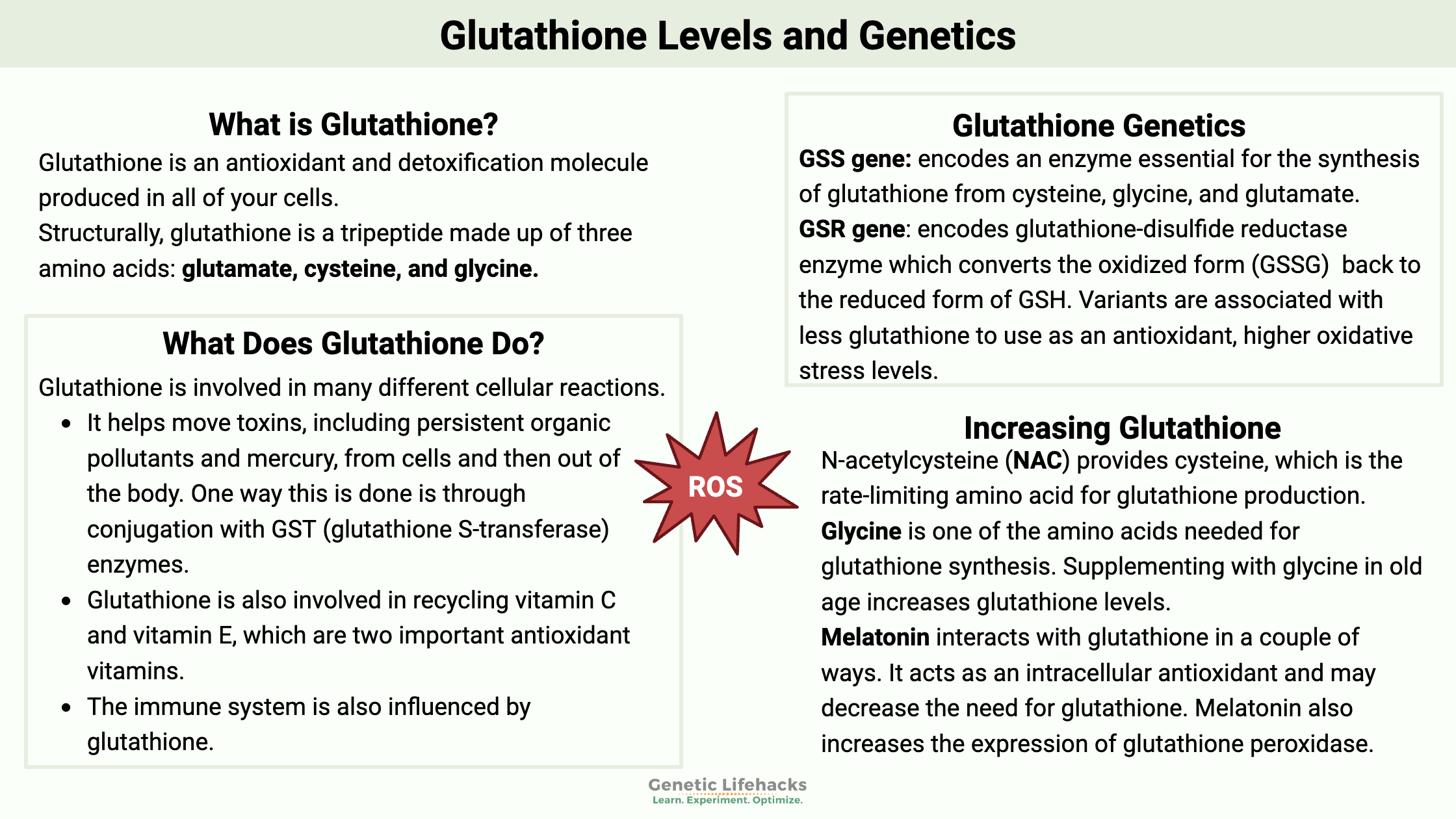
Glutathione: Master Antioxidant, Reducing Oxidative Stress, and Detoxification
Glutathione is an antioxidant produced in all cells to balance out ROS. Genetic variants can impact your glutathione levels, which can alter your ability to detoxify certain substances or withstand stressors in the body.
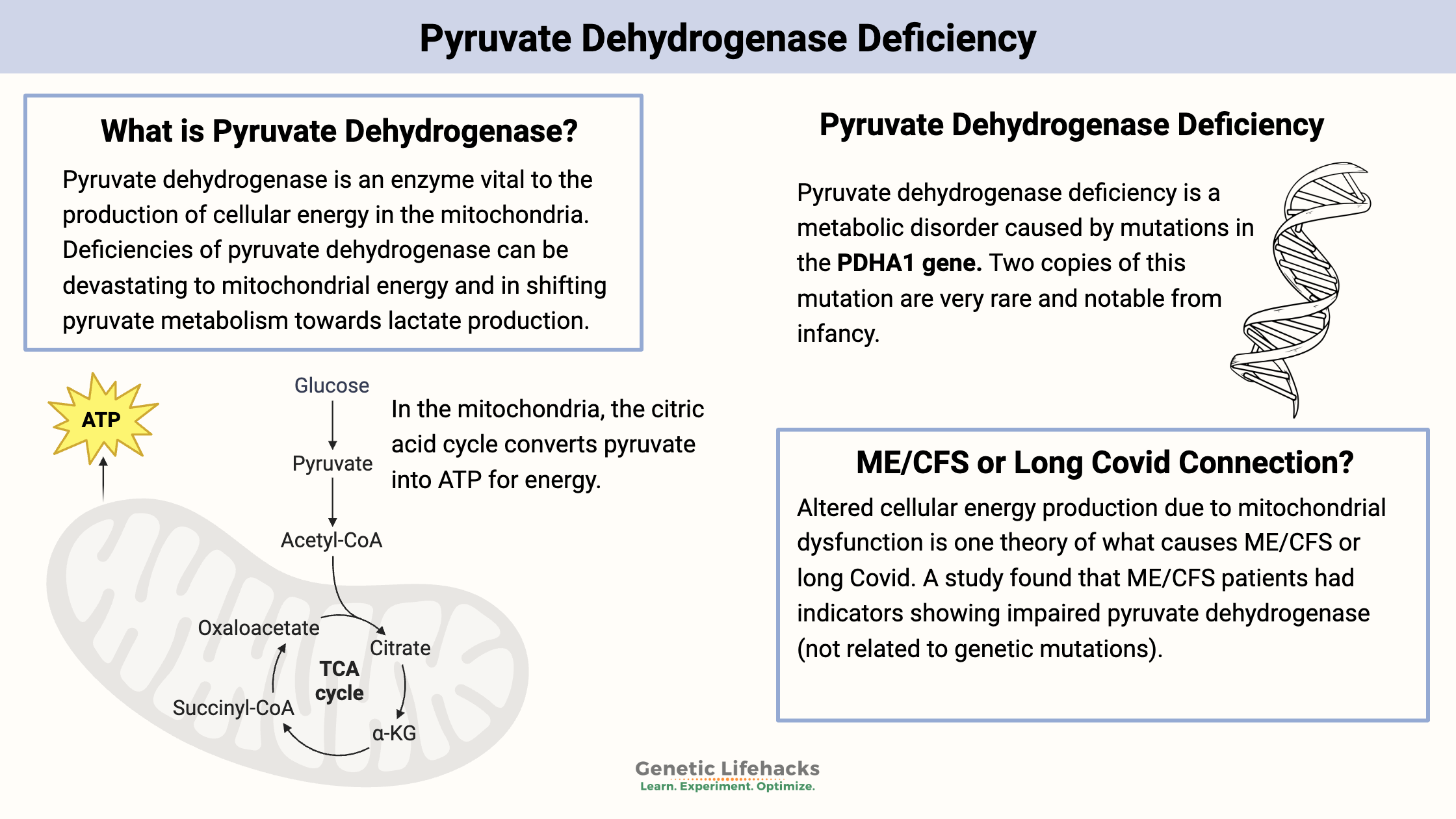
Pyruvate Dehydrogenase Deficiency – Mitochondrial Dysfunction and Lactate Production
Pyruvate Dehydrogenase is central to cellular energy production. Learn about its role in energy production, genetic mutations, association with ME/CFS and Long Covid, and strategies to manage its deficiencies.
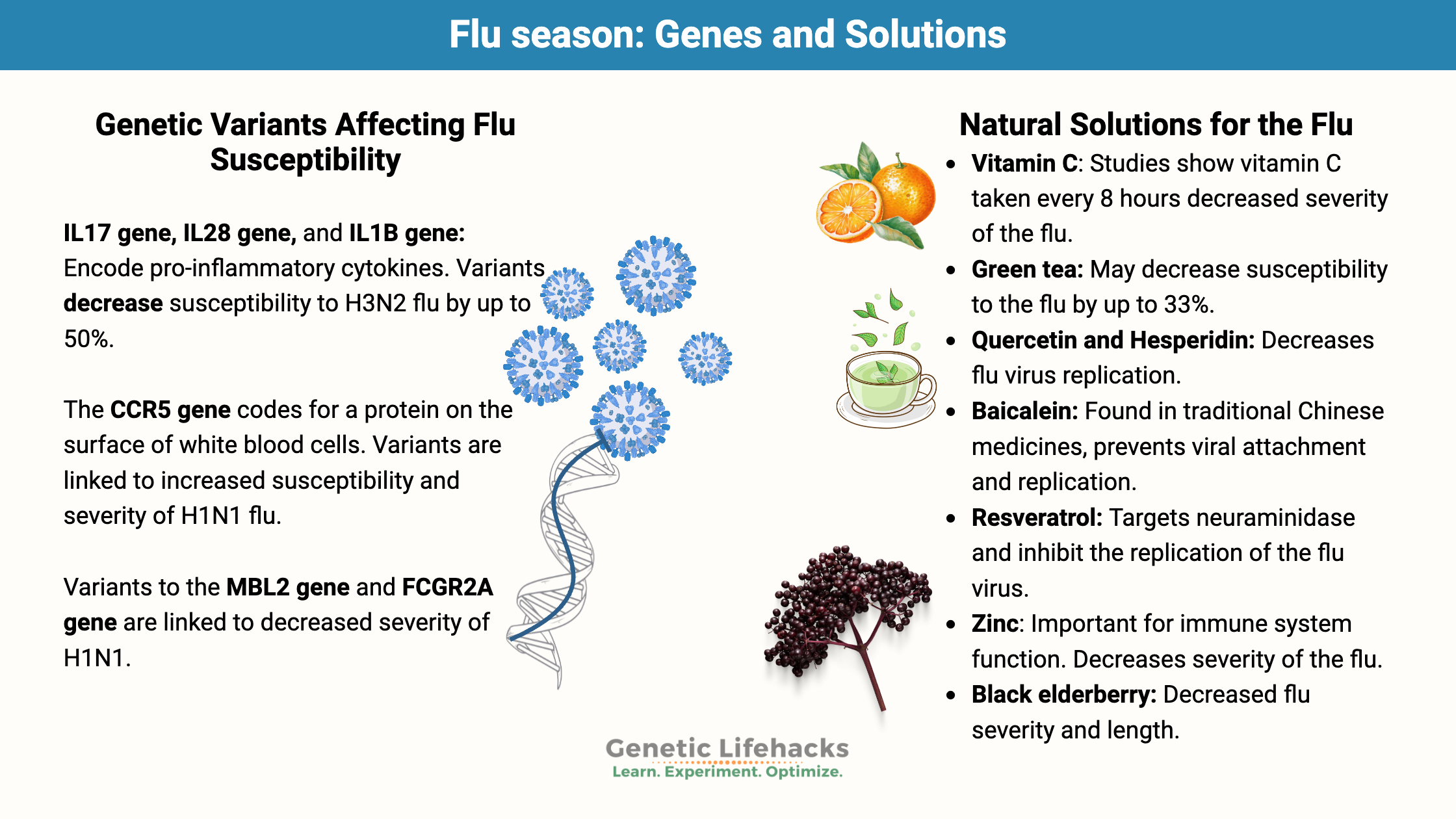
Flu Season: Genetics and Your Immune Response
Are you more genetically susceptible to the flu? Learn how your genes play a role and discover research-backed natural options to beat the flu.
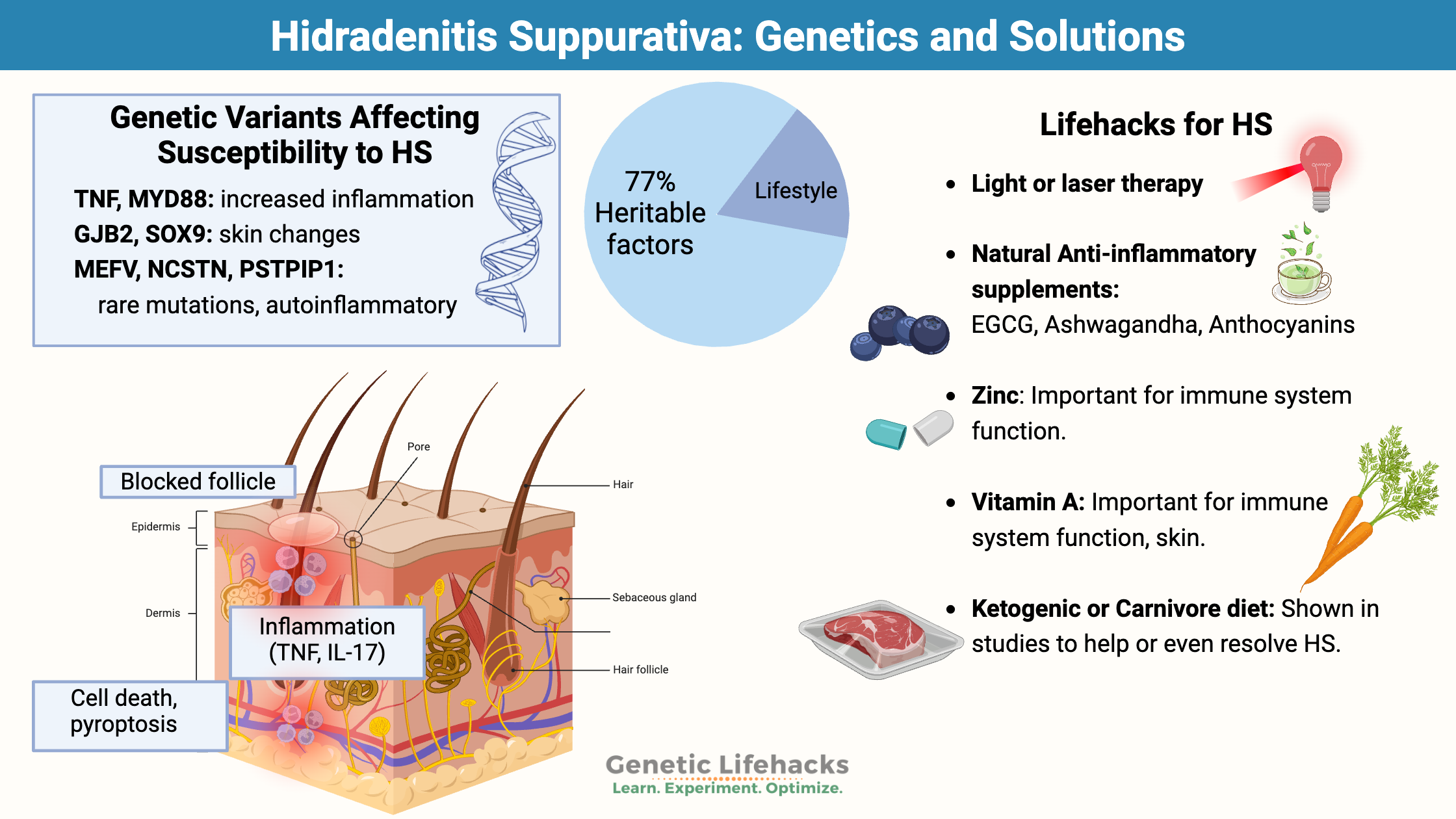
Hidradenitis Suppurativa: Genetic Causes and Possible Solutions
Hidradenitis suppurativa is caused by overactive inflammation and hyperkeratosis. Genetics plays a big role – along with environmental factors.
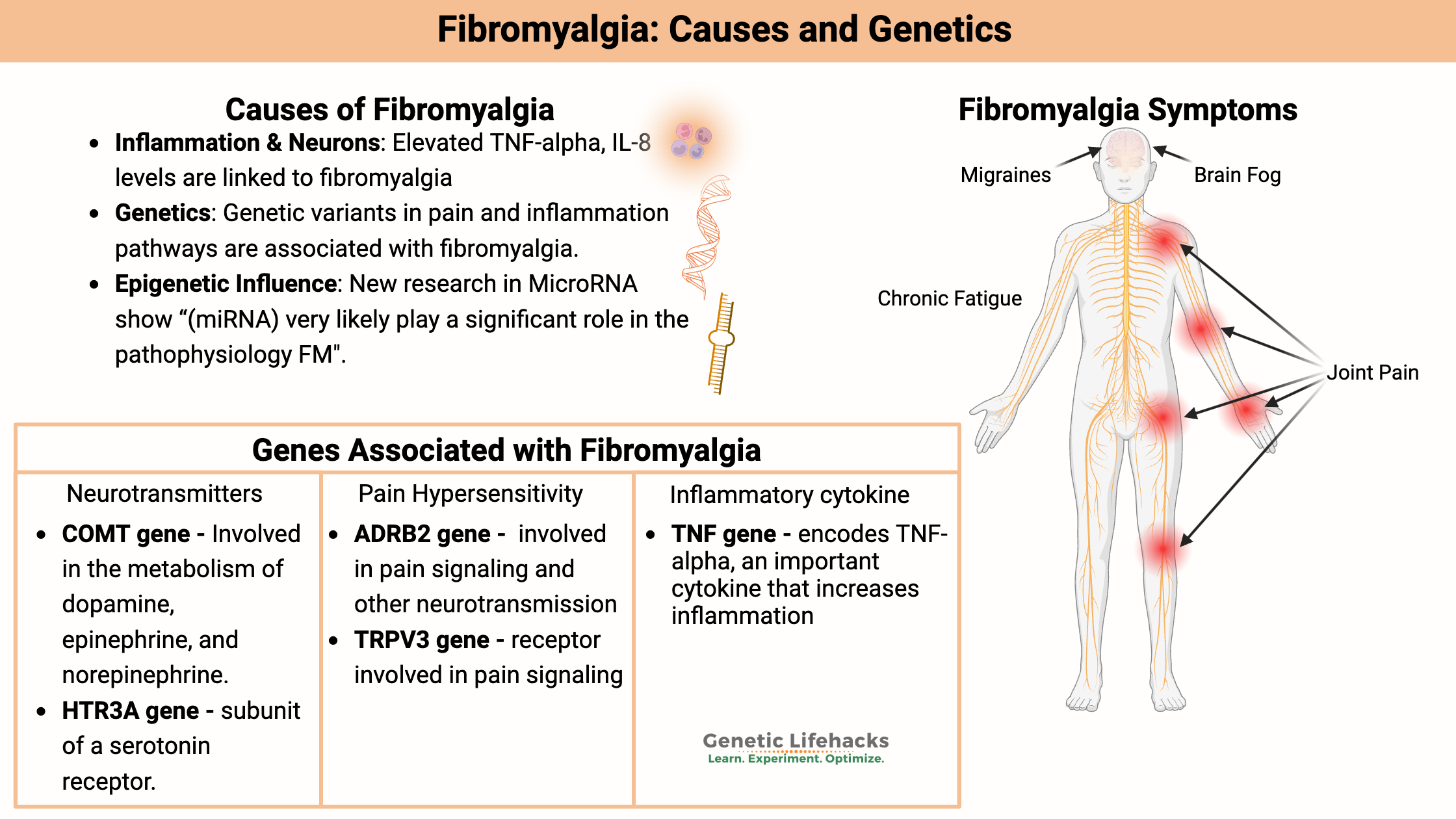
Fibromyalgia: Underlying causes and genetic connections
Learn about the potential causes of fibromyalgia, including inflammation, genetics, and hypersensitivity to pain, along with overlapping conditions that complicate diagnosis.
// Hormones
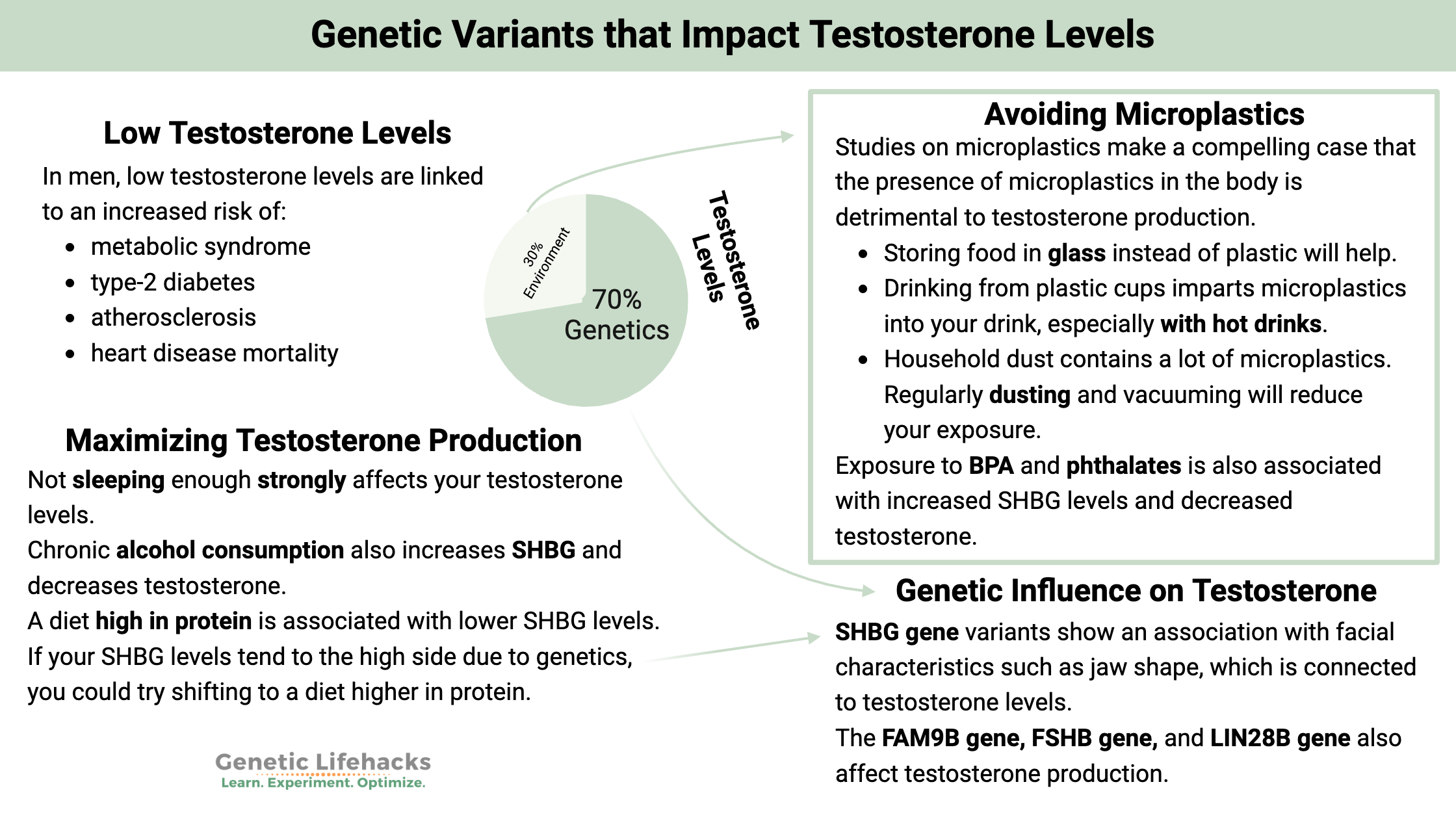
Testosterone: Genetic Variants that Impact Testosterone Levels
While diet and lifestyle play a role in testosterone levels, in males, there is a strong genetic component as well. Check out your genes to see if they are playing a role in your low T levels — and then check out the Lifehacks.
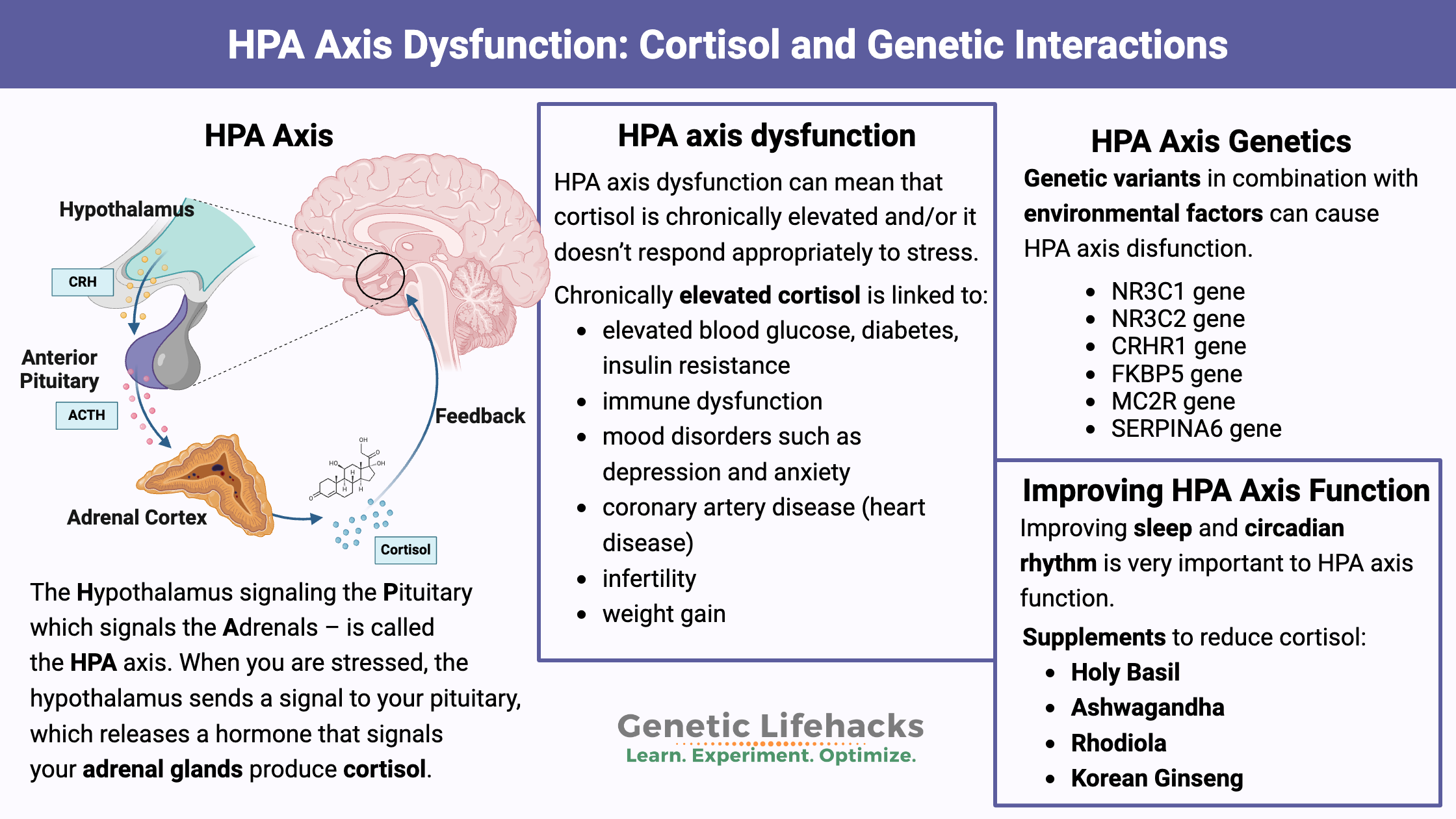
HPA Axis Dysfunction: Understanding Cortisol and Genetic Interactions
Cortisol is a hormone produced by the adrenal glands in times of stress, and it also plays many roles in your normal bodily functions. It is a multi-purpose hormone that needs to be in the right amount (not too high, not too low) and at the right time. Your genes play a big role in how likely you are to have problems with cortisol.

Thyroid Hormones: Genes, Hypothyroidism, and T4/T3 Conversion
The thyroid is a master regulator controlling many of your body’s systems. It is integral for metabolism and body temperature. Learn more about specific thyroid-related variants and check your genetic raw data.
Explore by Symptoms, Supplements, Diet, or Pathway:
Symptoms
Supplements
Pathways & Processes
Diseases, Conditions
Lifestyle & Diet
Genes, Proteins
Hormones
Medications
Toxins
My Story…
Hi! I’m Debbie Moon. Welcome to Genetic Lifehacks.
When I first had my genetic data sequenced, I was both amazed at the research available in academic journals and frustrated by the difficult language and disconnected topics.
Genetic Lifehacks began as a way to share what I was learning about genetics with my family and friends.
My goal has always been to freely share information so that everyone can benefit.
As the website grew in popularity, I decided that I needed to know more… both more about genetics and more about how the pieces of the biological systems fit together. Since my undergraduate degree was in engineering, I went back to school and received my Master’s degree in Biological Sciences from Clemson University in 2019.
Now a full-time endeavor, Genetic Lifehacks has reached over 2.5 million readers, equipping people to use their genetic data to optimize their health.
~ Debbie Moon, Founder of Genetic Lifehacks

